Since its creation in 2017, The Good Goods has established itself as a unique media and creative studio, dedicated to transforming the fashion, textile, and luxury industries.
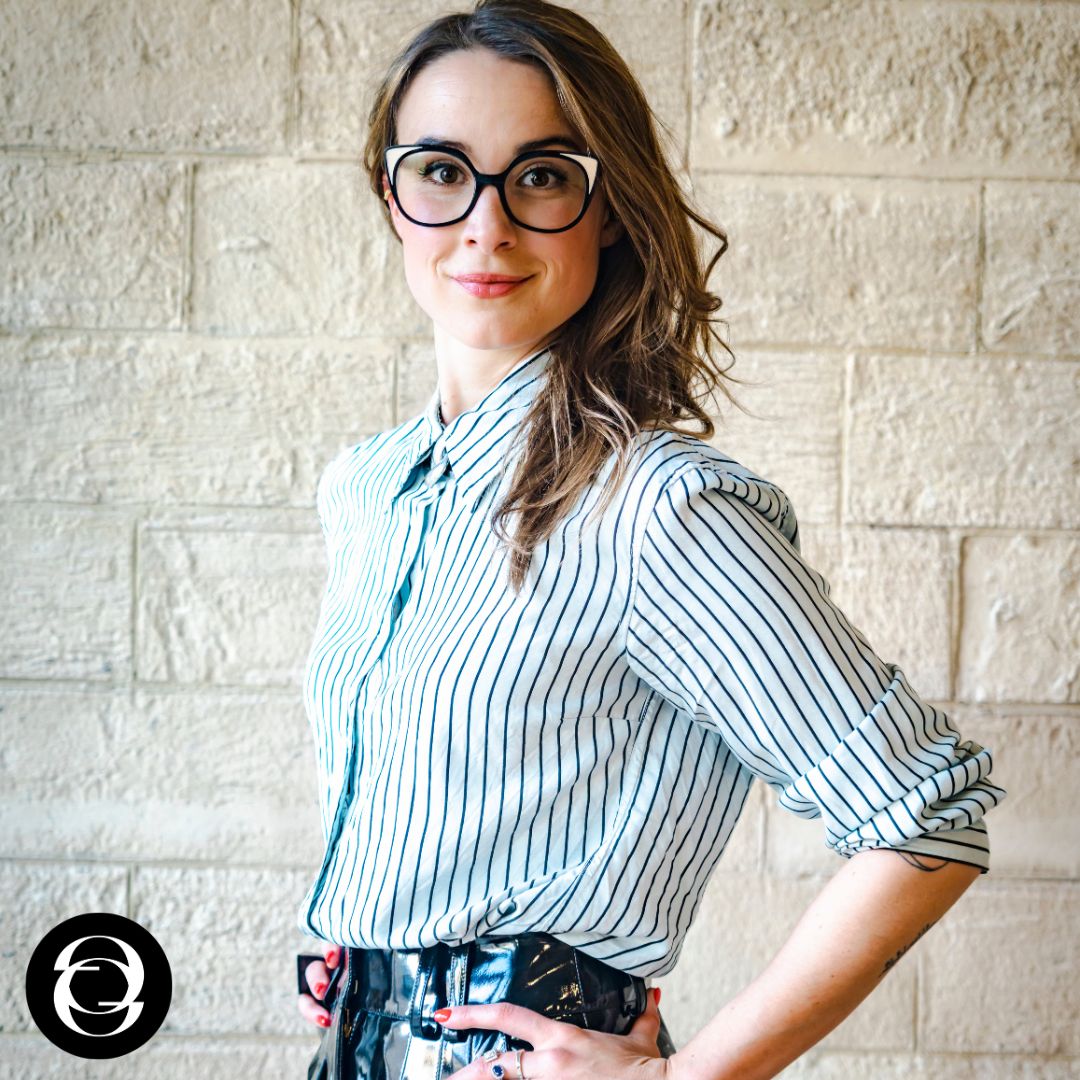
Bastien Beny and Simon Delacour are the creative minds behind the Domestique brand, leather goods accessories made in Paris.
Since 2016, they've been developing Domestique and roaming the streets of the capital to produce their collection, all within a 2-kilometer radius of their office at La Caserne, a Parisian mecca for eco-responsible fashion. Domestique has nothing to do with traditional leather goods brands. They turn luxury codes on their head, from the design of their accessories to their production methods, to offer their customers made-to-order items made directly in their workshop from eco-responsible materials. The brand appeals to the emotions, offering accessories inspired by everyday products. After a collection on the theme of office objects, the "Pleasure Room" collection was inspired by BDSM accessories. Harnesses, whips and chokers with sleek design and impeccable craftsmanship established the brand as a benchmark in creativity and leather goods.
In 2023, Domestique struck again with the unveiling of "Marché Nouveau", a range of trompe-l'œil leather goods accessories based on market items, from crates to kraft bags and scale tickets. A collection that makes sense, both in terms of the brand's need for proximity through its production methods, but also for its creative DNA, resolutely denouncing consumer society.
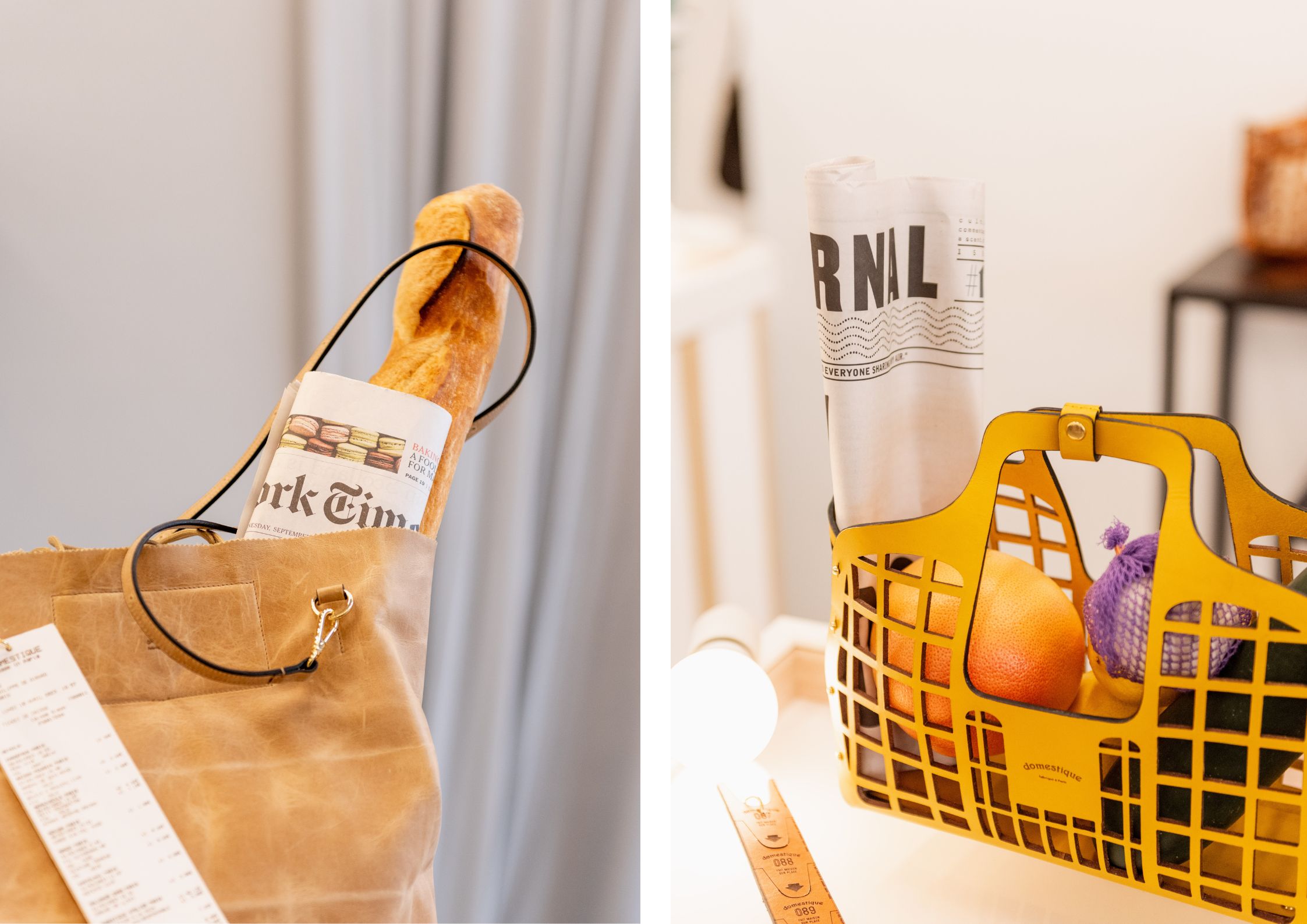
The "Marché Nouveau'' concept was a hit, propelling the brand and its designers to the top of the Grand Prix de la Création de la Ville de Paris 2023 in the Fashion Accessories category. The prize, presented by Jean-Charles de Castelbajac, means a lot to these two former students of the Ecole de Condé. Bastien Beny shared with us his feelings a few weeks after this victory, his inspirations and his ambitions for the future of Domestique.
How did you meet?
Simon and I have a very close relationship. We're both from Normandy. We met 18 years ago at the Ecole de Condé, a school of applied arts. Simon and I had both started out on a different path, with our sights set on architecture. We were both taken in by the fashion teacher, a fascinating person who introduced us to the medium of fashion and the affinities we could have with design in general. We met there, and haven't been apart since. 7 years ago, I came to Simon with a project, and he agreed to take part in this slightly crazy adventure.
In terms of creative process, how are the roles distributed?
Simon is a creative guy too, but with a background that’s slightly more marketing, sales and digital. I provide the creative impetus and coherence for the collection. With Simon, we're very human, and Esteban - who's an apprentice with us - also has to have his say on the design or the placement of a pattern. Since the beginning of the year, there have been four of us "on the ground" at Domestique. Everyone has something to say, and that's one of the advantages of being at La Caserne.
Your Marché Nouveau collection is inspired by products from local markets: crates, craft bags, baskets, ticket key-rings, but also whips that blend in with flower bouquets. What's the message behind using everyday objects?
The pitch for this collection is to further highlight our eco-responsible values and the commitments we've been developing over the past seven years at Domestique. This means ultra-local sourcing, with 95% of our suppliers located within a two-kilometer radius. We said to ourselves: "What could match this ultra-local universe?" The market fit the bill very well. It's also very reminiscent of childhood.
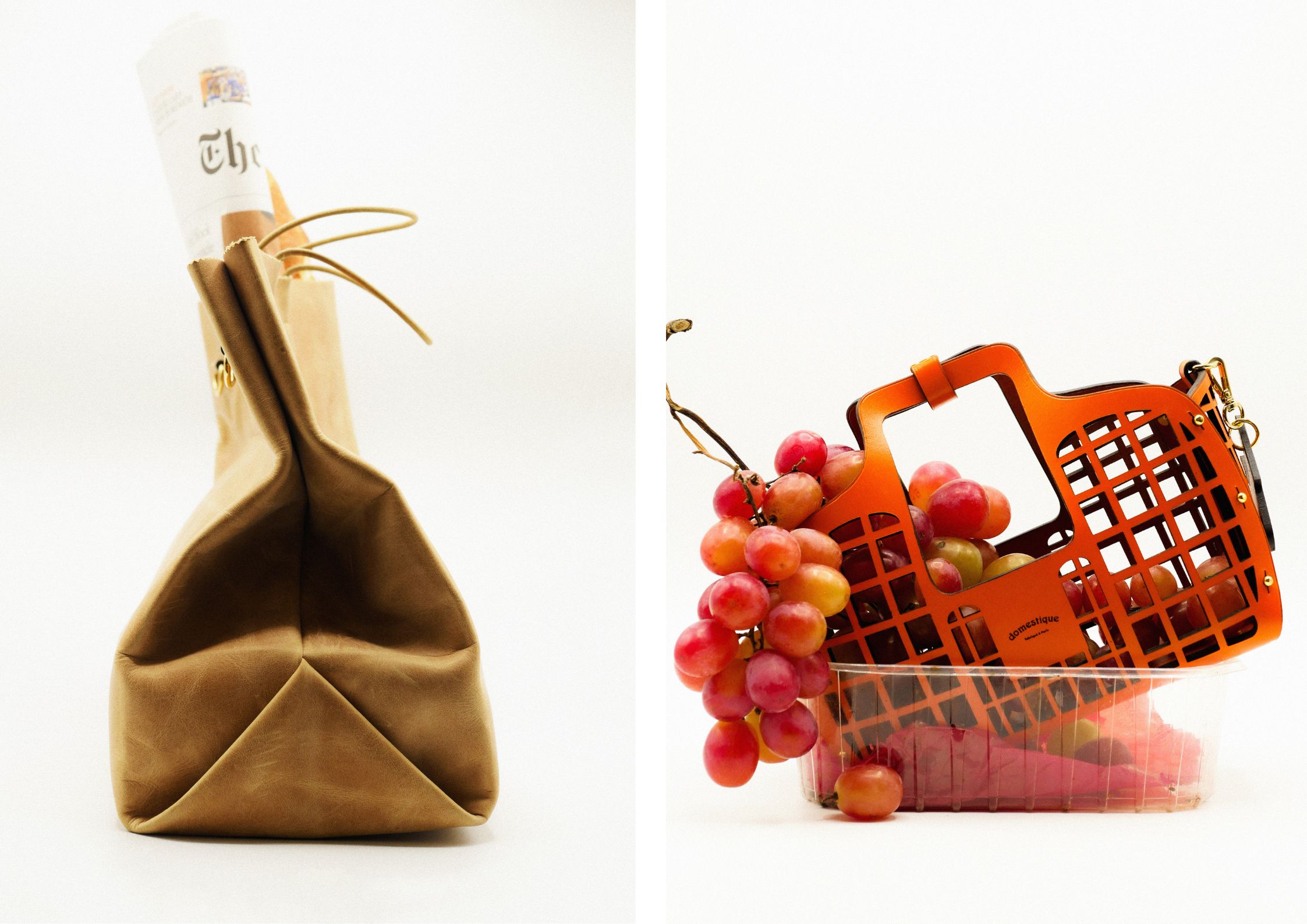
After Marché Nouveau, what do you imagine will happen next?
Domestique makes one collection a year. We don't really like the rhythmic seasonality of fashion. The next collection may go in the opposite direction. In this case, we've hijacked the iconic items from the local market, and then we want to take a page out of the supermarket aesthetic, where everything is referenced on the shelves. We like to play with standards. There's a standard called "the European hole", which we're going to try to hijack, to have the opposite of buying locally, buying in supermarkets. All that while working with noble, sustainable and eco-responsible materials, to have these two opposing images.
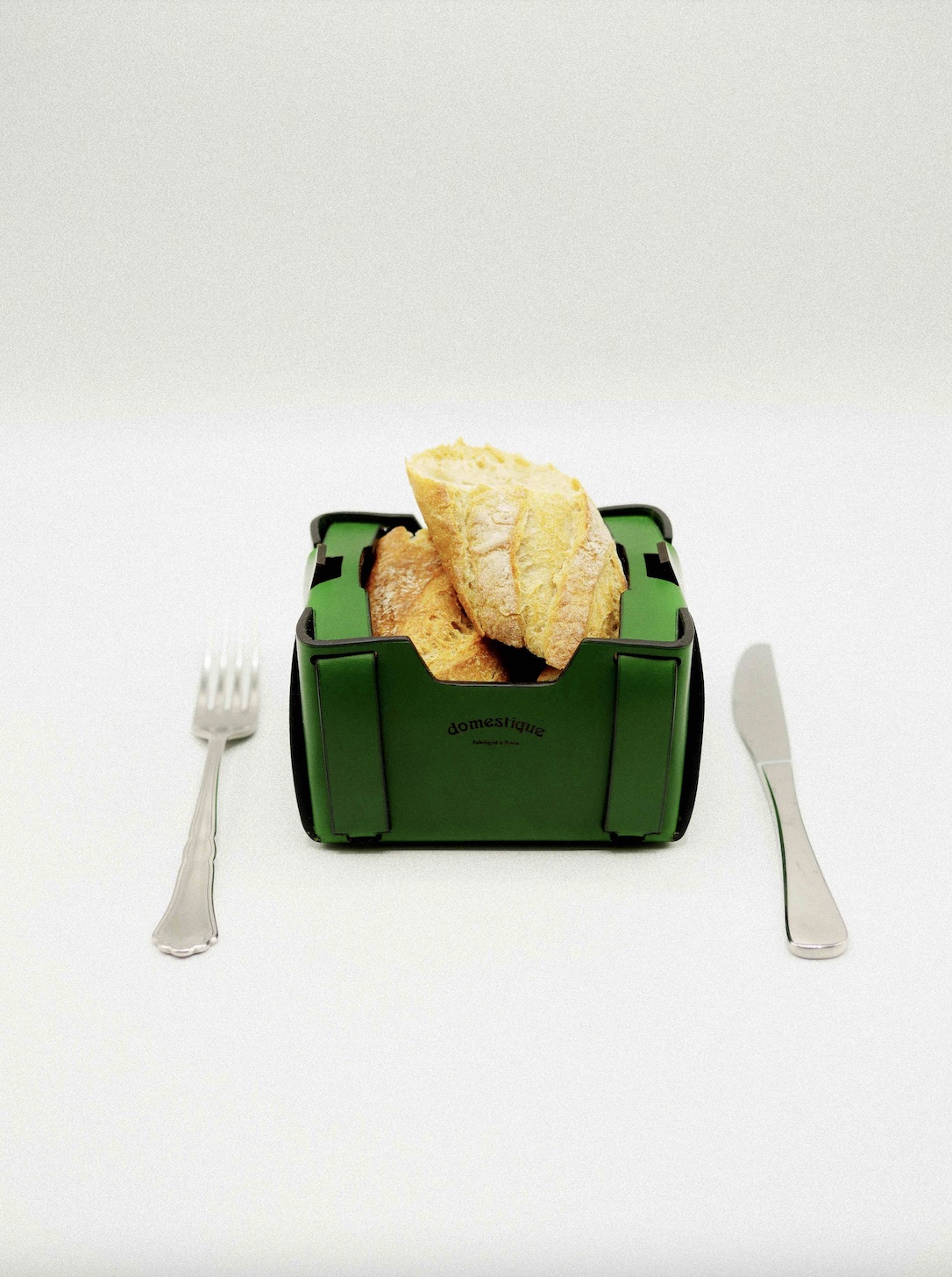
You won this year's Grand Prix de la Création de la ville de Paris in the accessories category. What does this prize mean to you?
It's really important. Especially since it’s the prize’s 30th anniversary. Simon and I are in our thirties and we really believe in signs. It makes us think that at this stage of the Domestique company, we're beginning to be a little more mature in terms of aesthetics, concept and the message we want to convey, and that it's understandable. We're proud to have been rewarded by the Grand Prix after months of research and development.
Since 2018, Domestique has been displaying the "Fabriqué à Paris" label and is involved with En Mode Climat and Paris Good Fashion. What is the role of a brand today when it comes to environmental issues?
I'm a professor at a fashion school where I talk about eco-responsibility. A brand has to be responsible, whether it's in its typology, in the materials they use, in its sourcing, in its manufacturing or in its socially responsible values. Whether it's made by people who earn a decent wage or whatever, it's an obligation.
You use very specific production processes, calling on local suppliers and craftspeople, but also you also involve complex production techniques such as laser cutting. How does this affect the sustainability of your products?
We call ourselves Domestique because we like to domesticate know-how. I've been domesticating leatherworking know-how myself for some fifteen years now, with all its ancestral techniques, handcrafting and age-old tools. We wanted to blend them with new technologies, in particular the Trotec, a state-of-the-art laser-cutting machine. Our challenge is to produce 100% made-in-Paris products at a cost that is not exorbitant.
Domestique is a seasonless brand, which is quite innovative in this industry. What motivated your decision to move in this direction?
It's the time to take the time, to bring out a product that stands the test of time.
Do you think this represents a new era for the future of fashion and designers?
In the 15 years that I've been a professional in this field, I obviously feel that a lot of questions have been asked. For my students, CSR and having seasonless collections are natural for them. This is a generation that you no longer need to teach about how to consume and create a product that is sustainable. I feel reassured that future generations will try to make this industry a better one, especially here at La Caserne.
You've presented your creations on several occasions at Première Classe. What impact has the show had on Domestique?
There's a loyalty that's developed with Premiere Classe, with Sylvie in particular, to name but one. We're welcomed with dedicated support and preferential rates for young designers. Then there's the commercial visibility, which is very strong. It shows that a brand is constant, that it's resilient and that it's making money. For shops that are a little more specialized or a little bigger, it's a mark of legitimacy and visibility.
What's your best memory of Première Classe?
Best memory: the parties.
In your opinion, what future trends can we expect in the accessories sector?
It's very difficult for a creative person to answer that. I can mention the CNC (Conseil National du Cuir), that wants to send us trend books on shapes, colors and anything else likely to be bought tomorrow. It's something that gives me the creeps. I don't know if I can create like that. I don't know if I'm right or wrong, but we're more likely to get carried away by a creative accident than to follow a trend.

Since its creation in 2017, The Good Goods has established itself as a unique media and creative studio, dedicated to transforming the fashion, textile, and luxury industries.
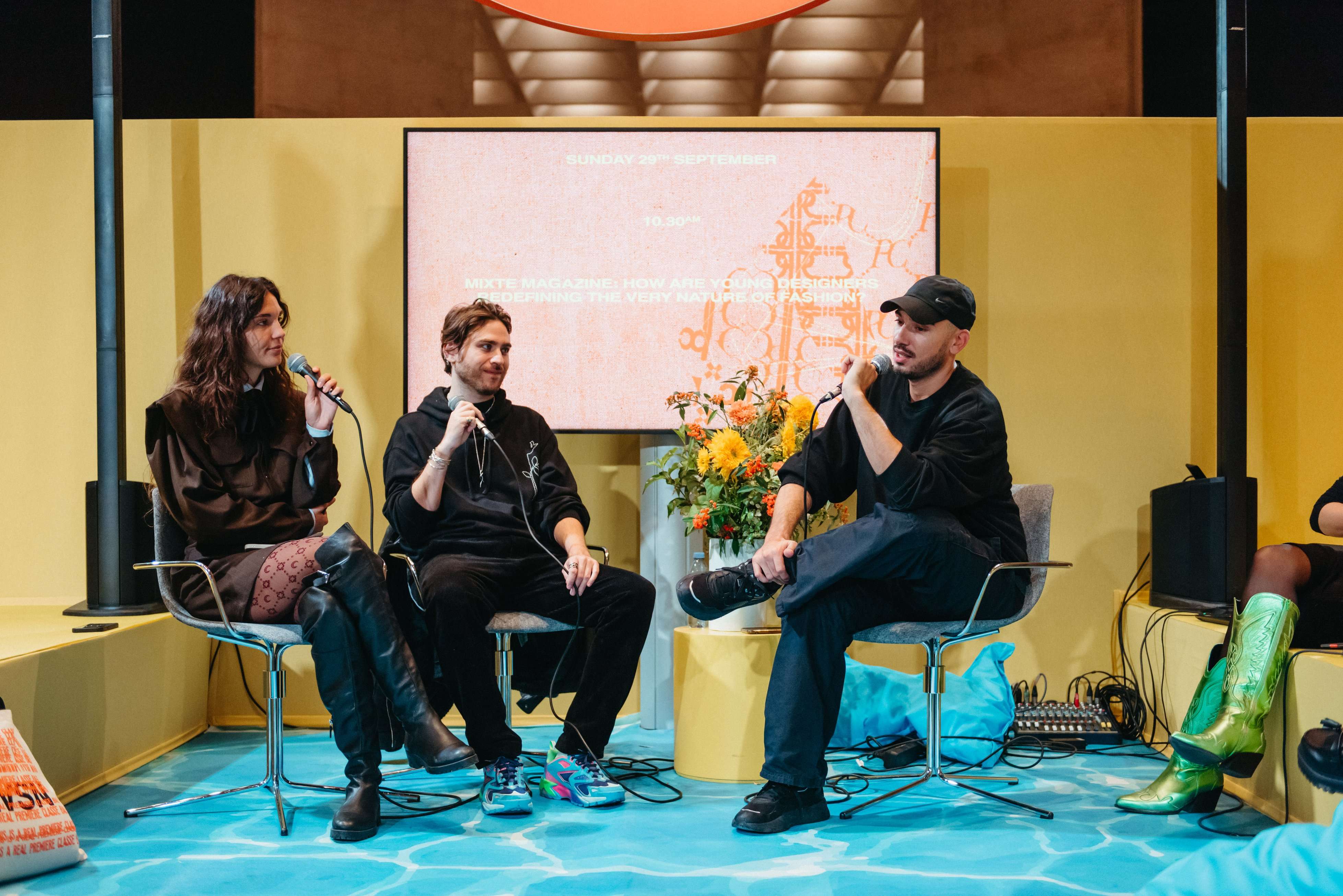
In the vibrant setting of the Beyond the Noise space at Premiere Classe, a talk hosted by Mixte Magazine captivated the audience with an audacious theme: how the new generation of designers is reshaping fashion by reconnecting with nature and craftsmanship.
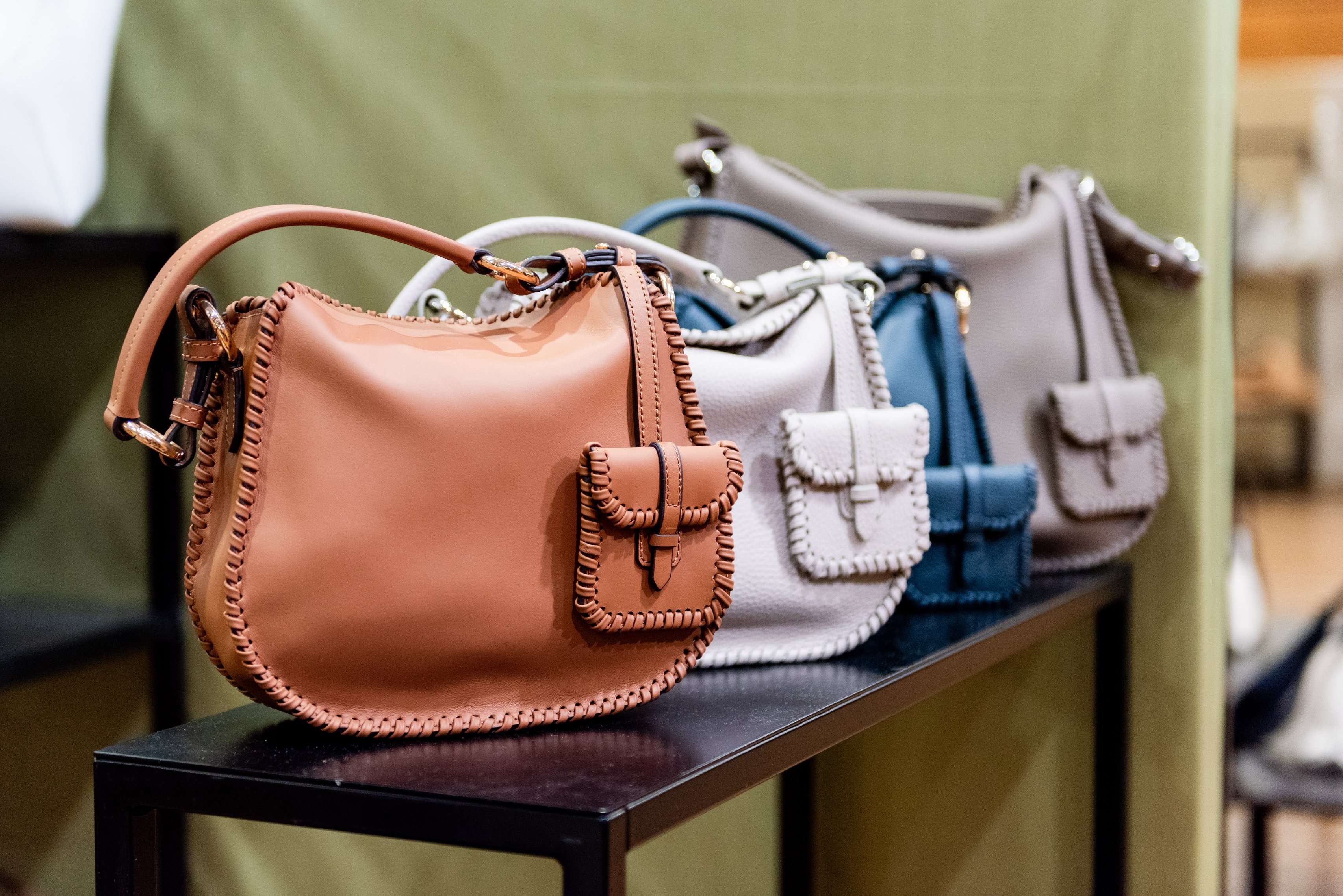
Founded by sisters Fazla and Eda Topbaş, Vuqu is a Turkish leather goods house based in Istanbul that skillfully combines elegance and functionality.
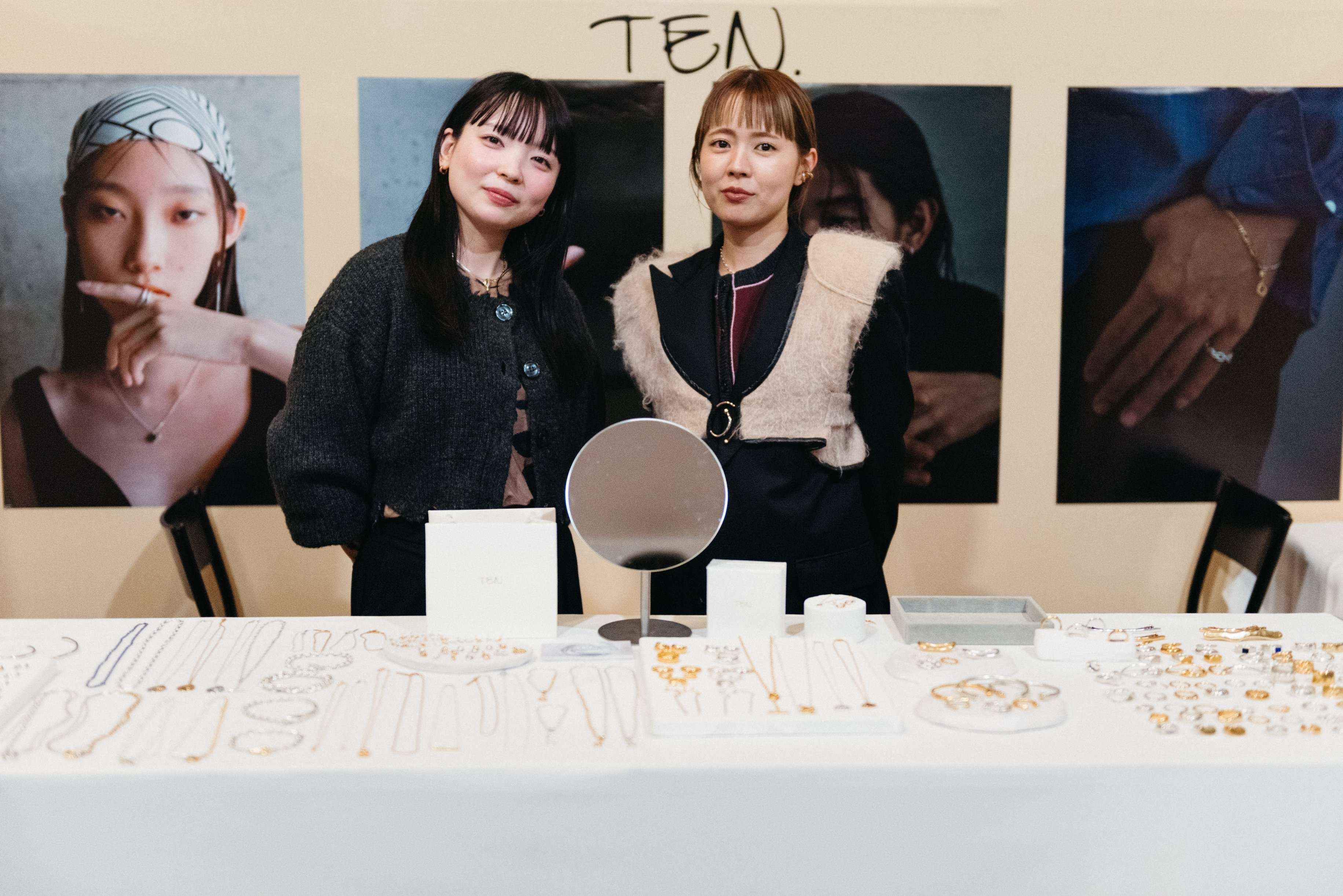
Founded by Japanese designer Akane Horikami, Ten. has become a go-to brand for those seeking a blend of nature, minimalism, and contemporary elegance. At this fifth participation in Premiere Classe, Ten. continued to captivate with a collection exploring fluid lines while introducing more geometric elements.
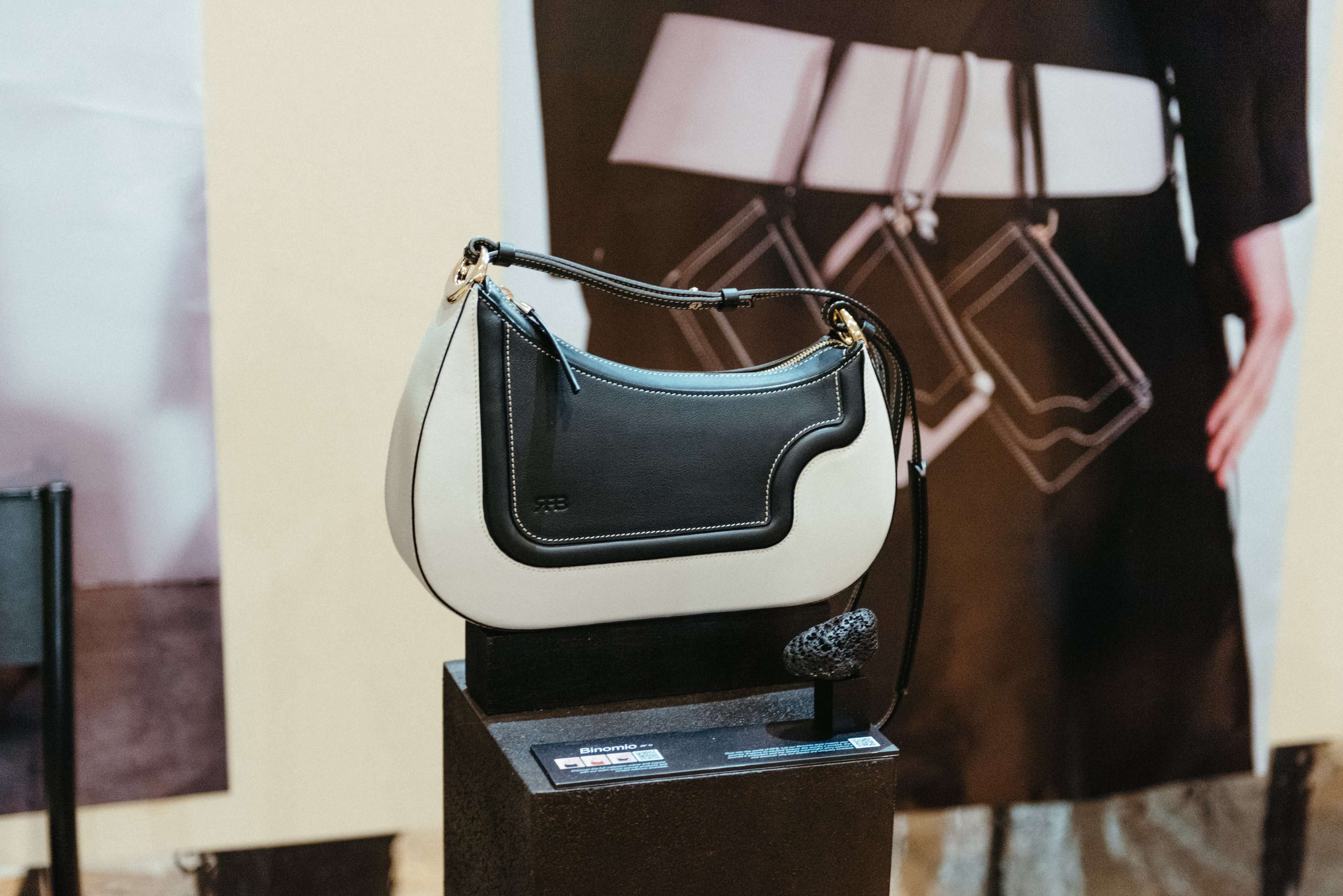
At her debut showing at Premiere Classe, Raquel Figueroa Borque, founder of the leather goods brand RFB, shared her journey, inspirations, and vision for a sustainable, timeless, and meaningful approach to fashion.
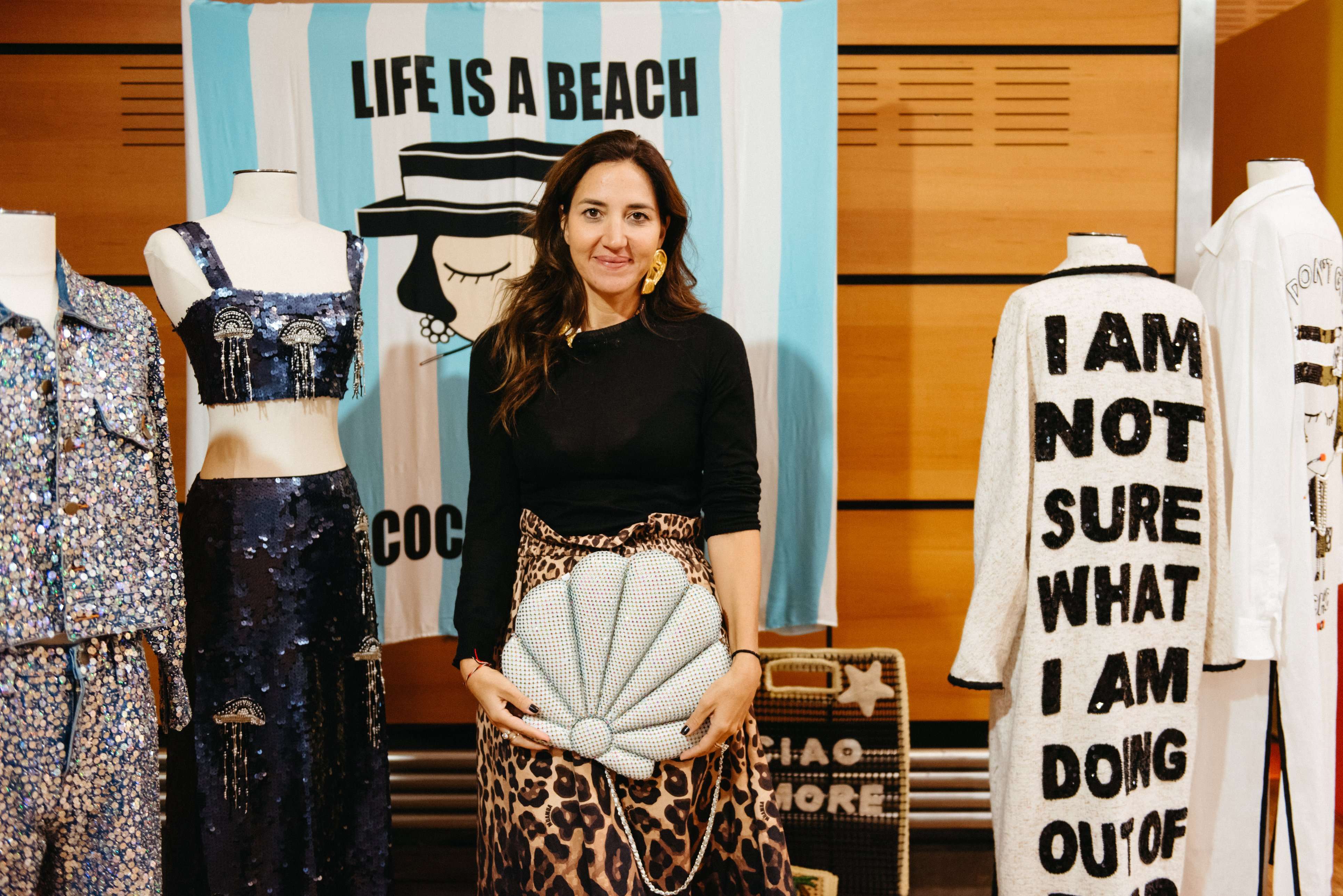
Founded by Ludovica Virga, House of Mua Mua stands out with its playful, humour-filled approach to fashion. At this September’s edition of Premiere Classe, Ludovica presented her new collection, Happiness is a Summer in Italy, inspired by her summer holiday memories. This collection brilliantly reflects the brand’s DNA, combining light-heartedness, humour, and meticulous craftsmanship.
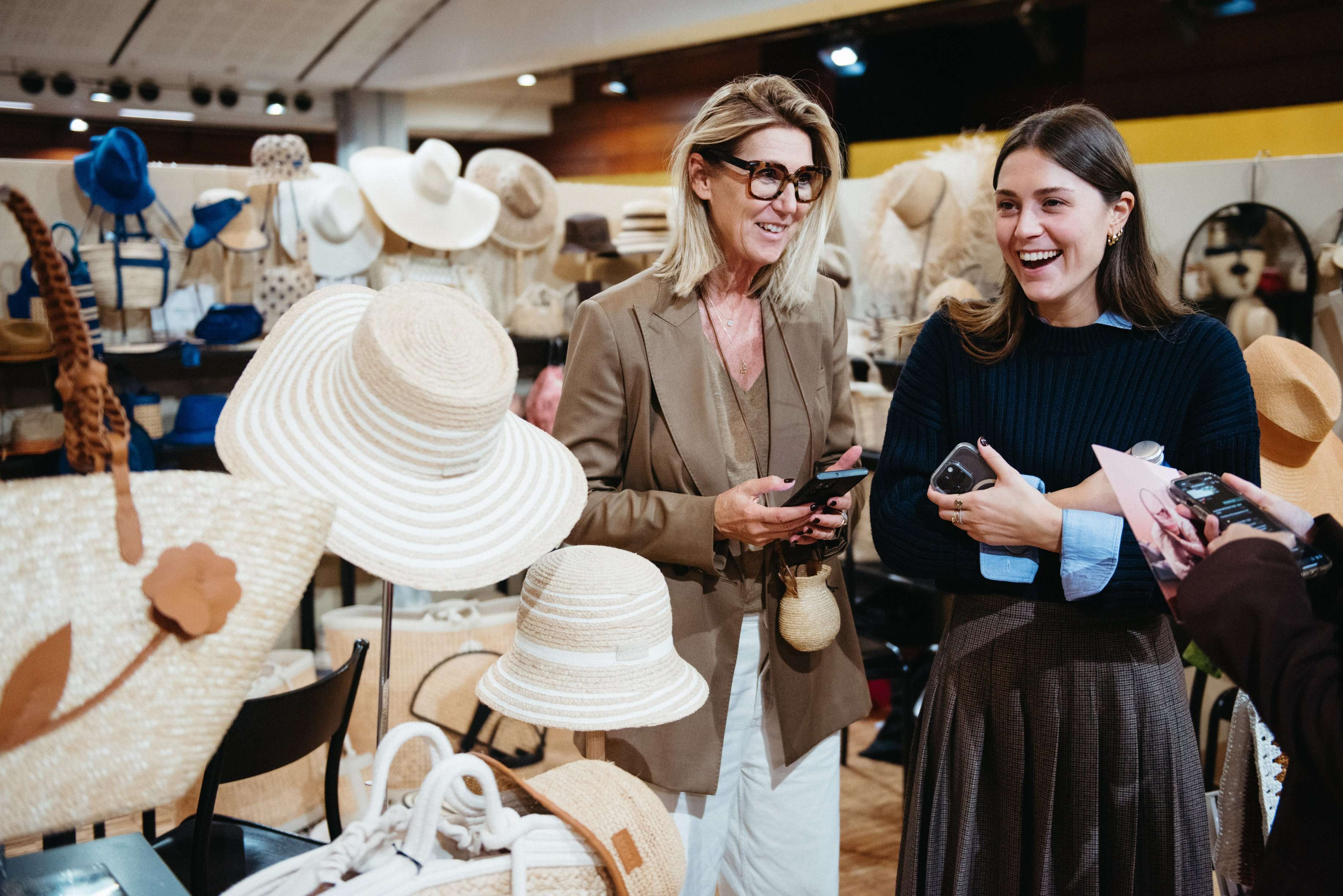
The hat and accessories house Catarzi 1910, led by the Nistri couple as co-directors and designers, represents far more than a family business. It embodies a century of artisanal traditions, creativity, and innovation carried across generations.

Amambaih, founded by Mariela Schwartz Montielle, represents a unique fusion of art, culture, and humanity. Originally from Paraguay, Mariella draws on her multicultural roots to realise a creative vision that goes far beyond simply crafting artisanal shoes and bags.

As the western aesthetic captivates designers, brands, and consumers, one French brand is riding the wave: Soco. Created in 1932, this “sleeping beauty” brand was revived three years ago, following a brief closure, thanks to the efforts of two passionate sisters-in-law who share the same first name. So the story of Soco is continuing under the stewardship of the “Maries Mignon.”
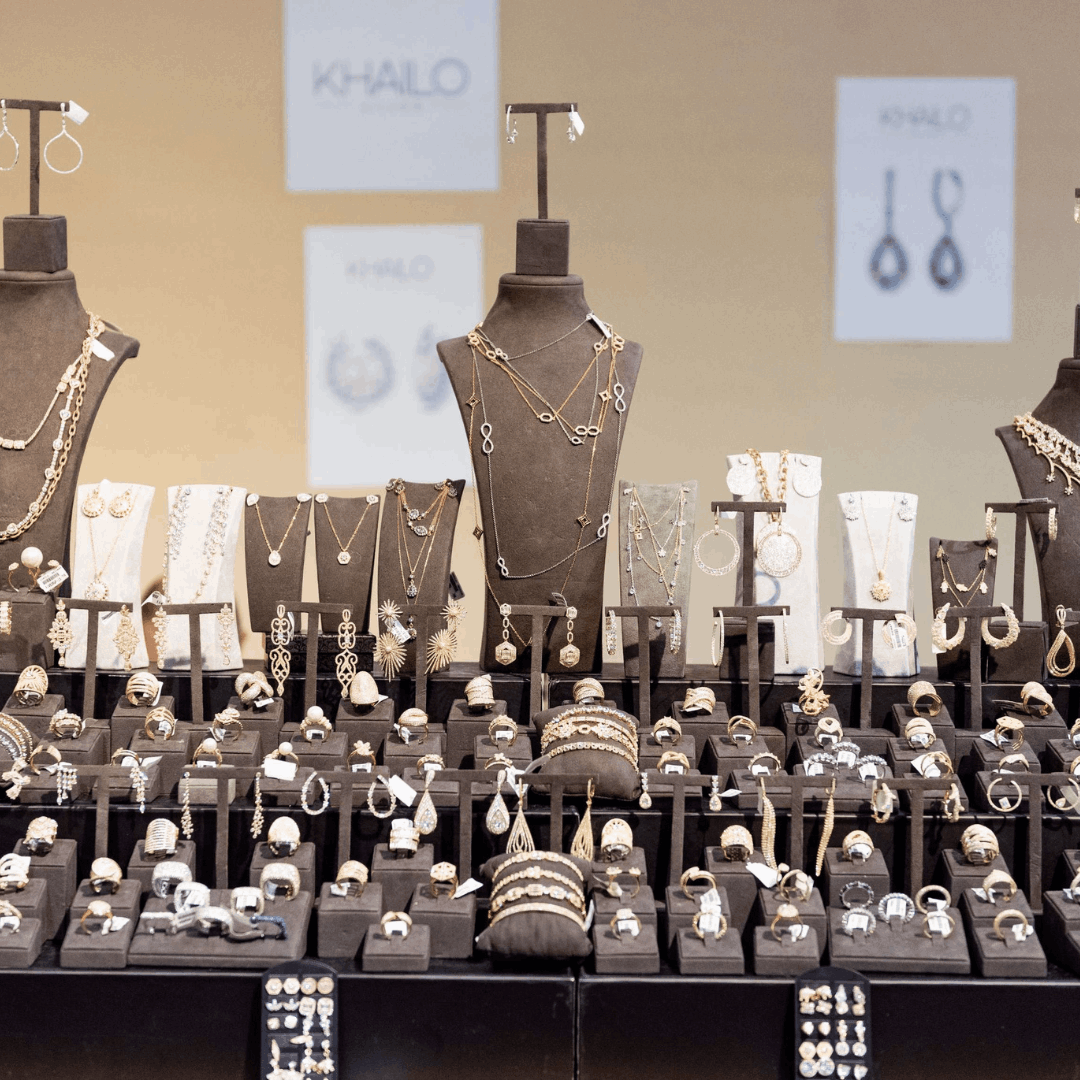
The Turkish brand Khailo Silver has been offering modern and elegant jewellery for over ten years. With meticulous finishes inspired by fine and high jewellery, their premium designs, often adorned with Swarovski crystals or other precious and semi-precious stones, have made them internationally renowned.

Founded in 2015 by the Italian duo Michelangelo Brancato and Francilla Ronchi, Coreterno is a niche perfume brand whose name means “eternal heart” in Italian, and the brand creates unique candles imbued with esotericism. Their style is a blend of rock, almost punk aesthetics, and a mystical aura, forming an invisible bridge between the ancient and the modern.
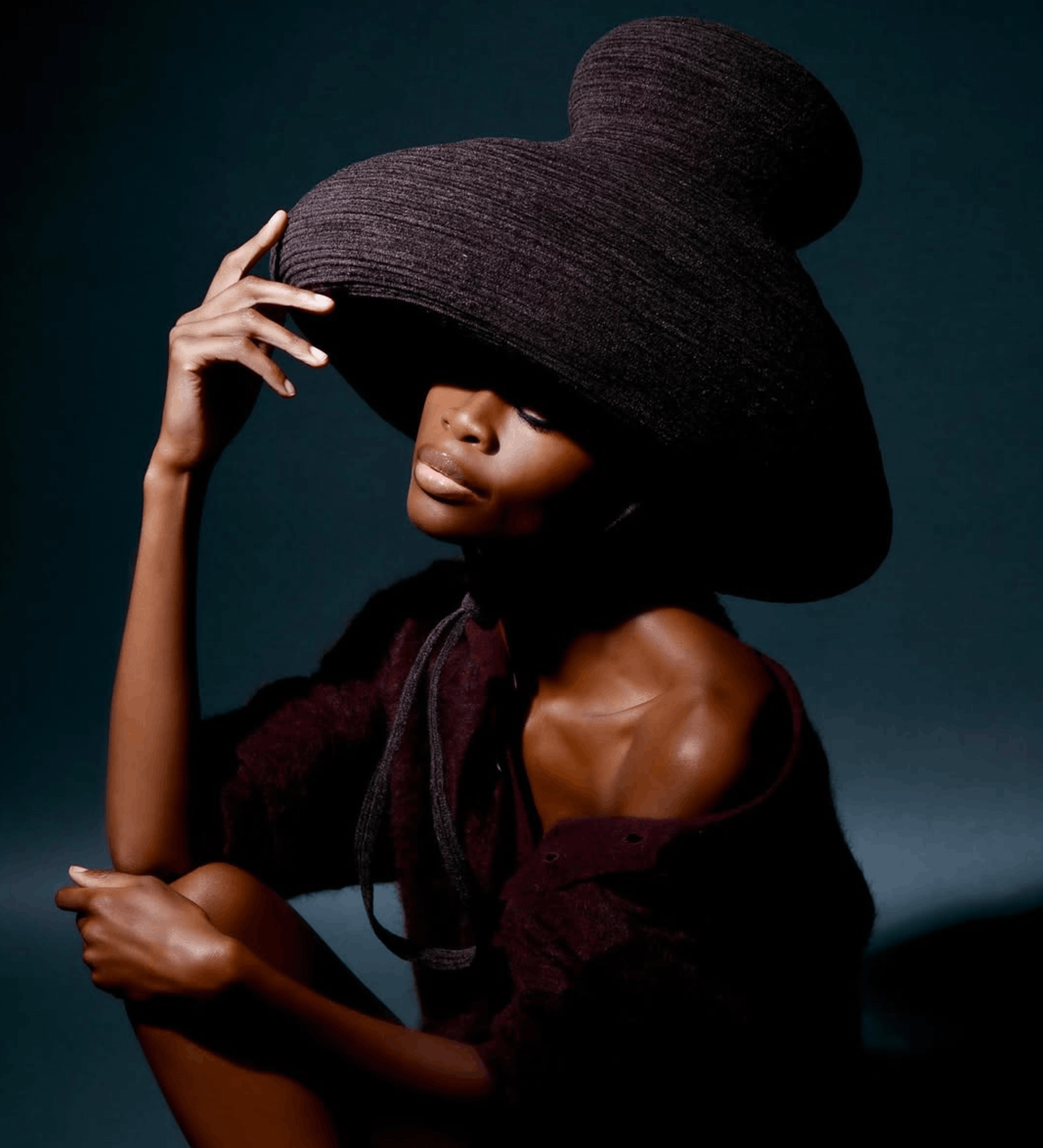
Based in New York City, the hat brand Esenshel, founded and led by Rodney Patterson, embodies a unique approach to hat creation.
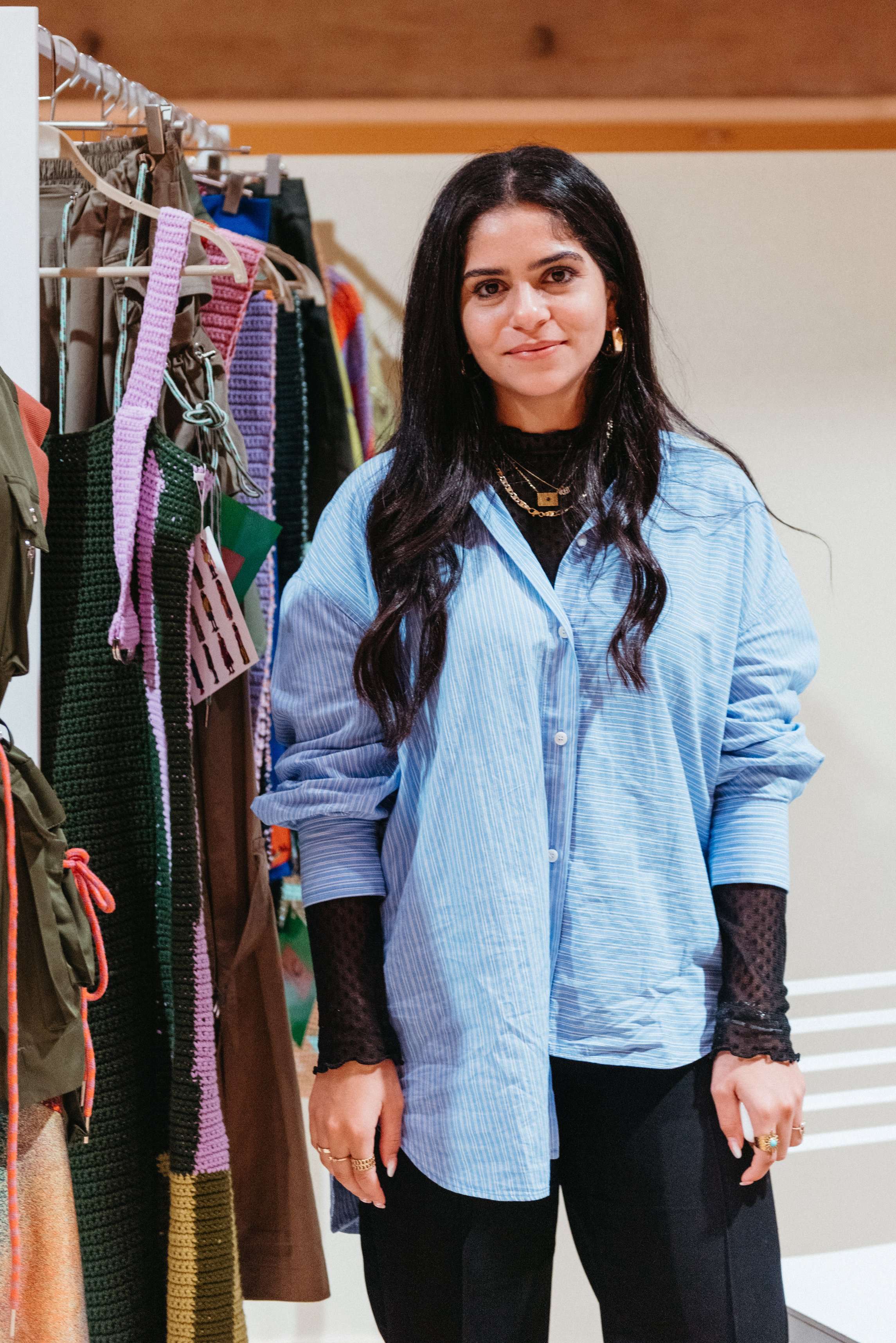
Presenting for the first time at Premiere Classe, Amina Galal represents a new generation of Arab designers who blend tradition and modernity with a personal, emotional touch.

For Thaïs Roblowski, fashion is a true calling, and after studying design and pattern-making at the Chambre Syndicale and interning at Thom Browne in New York and Mugler, she became a stylist at Cacharel and Alzaro.
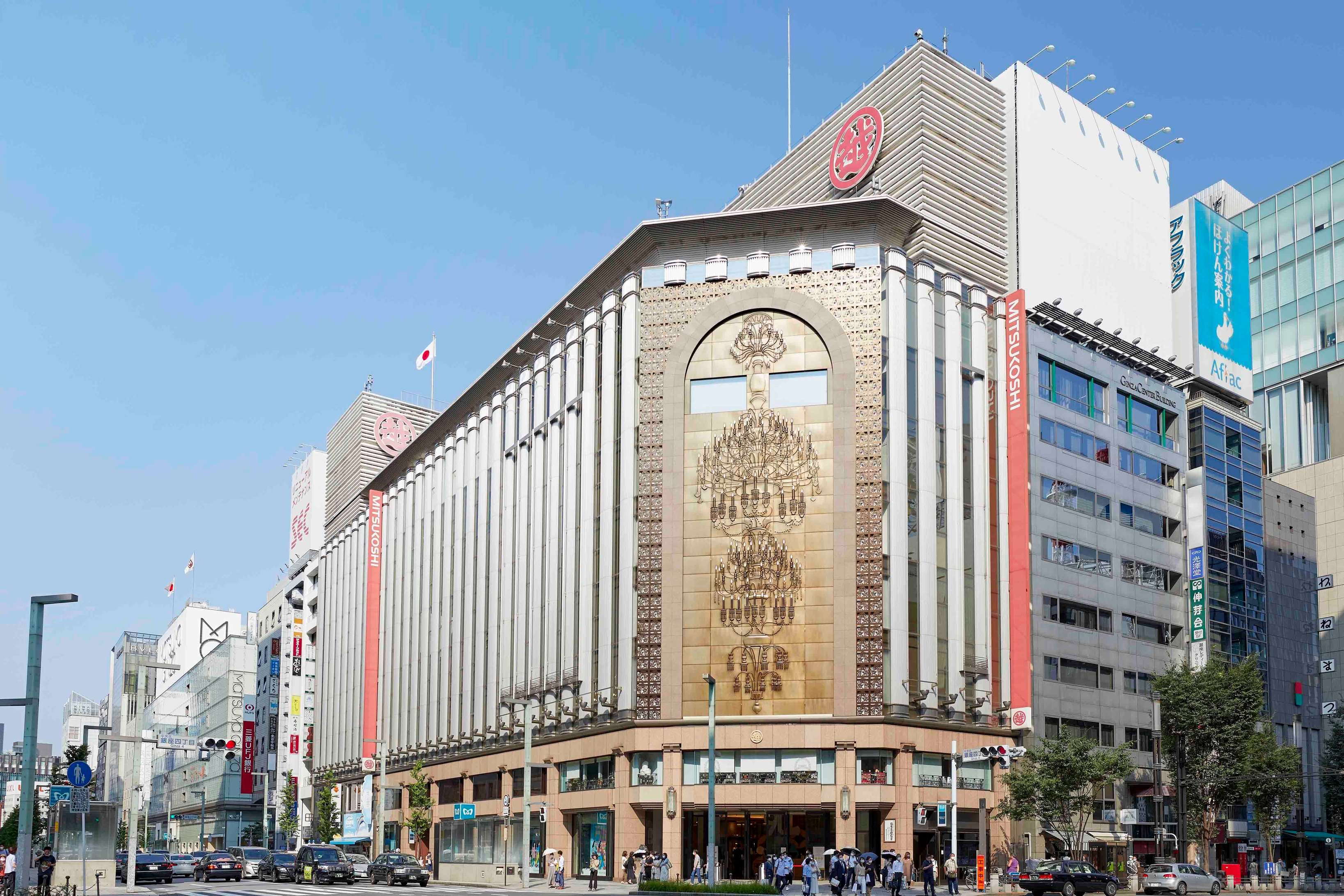
The Parisian eye of Japanese department store Isetan Mitsukoshi tells us about her latest Who’s Next fashion crushes.
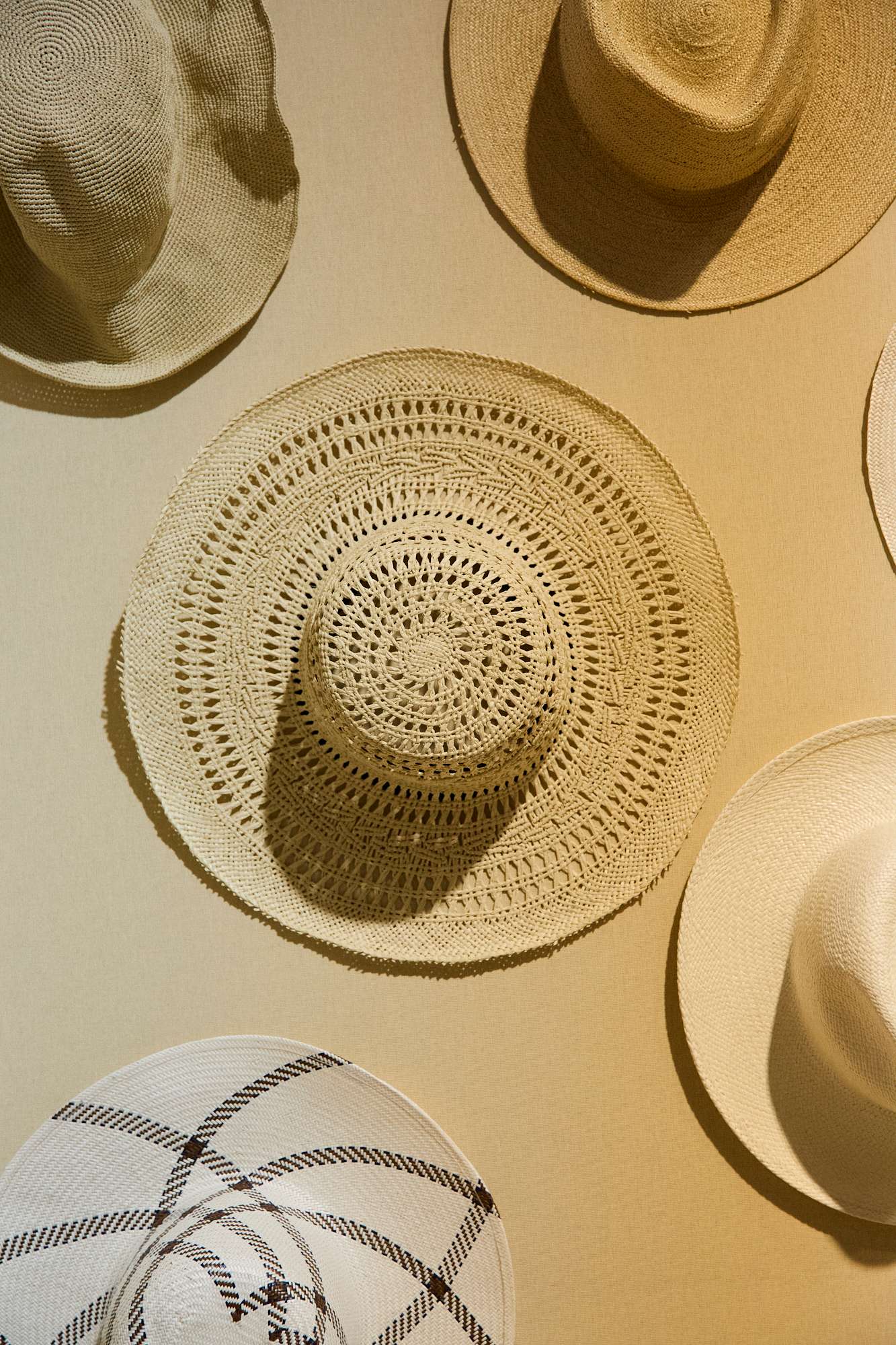
Reinhard Plank (Founder and milliner), originally from Vipiteno (Italy) near the Austrian border, first studied design in Vienna before turning to millinery. "I started with hats in Vienna, and my first classic model was a great success," he says. Drawn to Florence's rich hat-making heritage, Reinhard chose this city to perfect his craft.

At the latest edition of “Who’s Next,” we spoke with Camille Pouvreau and Lucas Bouteille, watch and jewellery buyers for Galeries Lafayette, about the burgeoning men’s jewellery market and the long-lasting nature of trends in the watch sector.
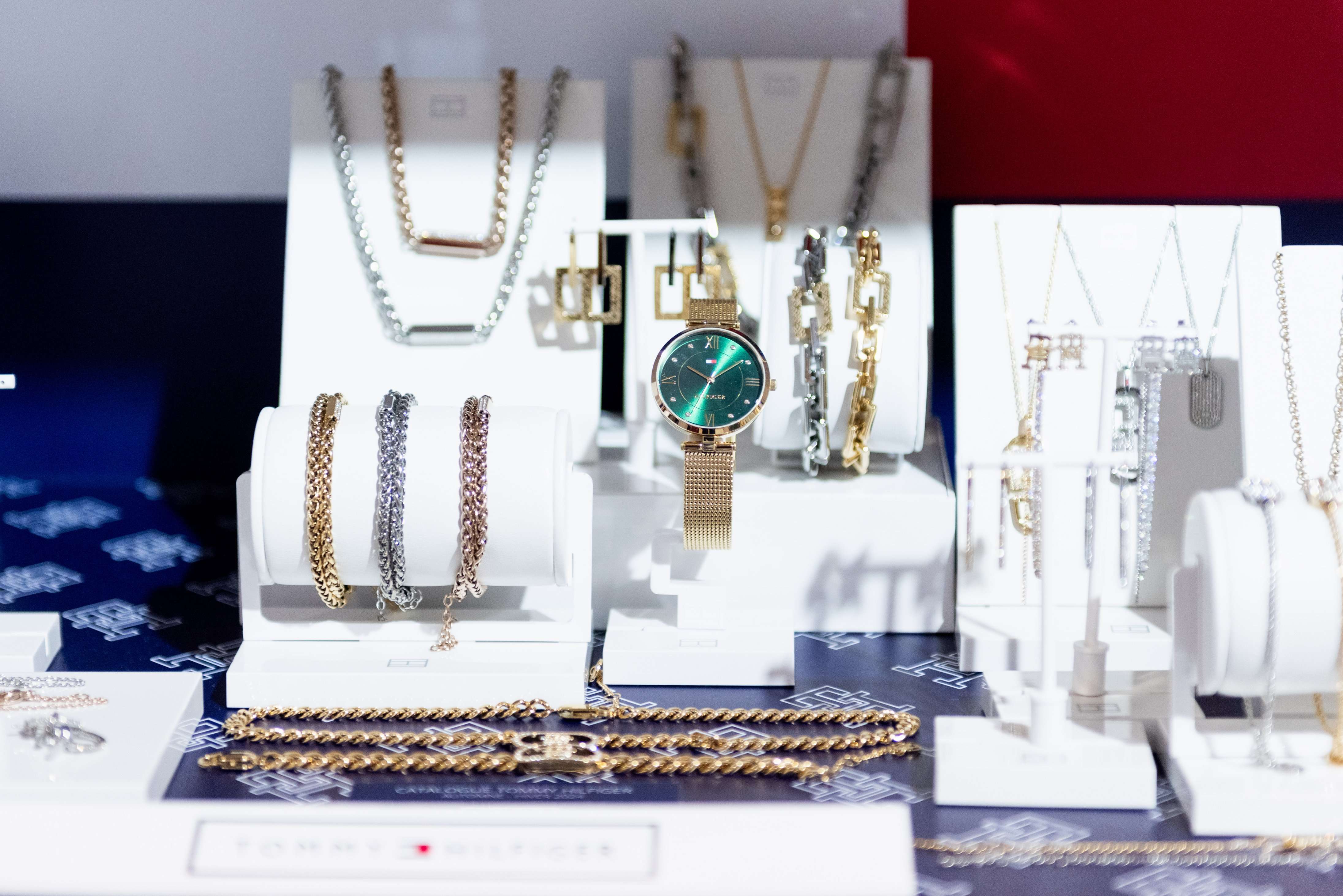
A key player in the watchmaking industry since the 1950s, the American Movado Group initially established itself through the distribution of traditional Swiss brands. Over time, it expanded globally, broadening its portfolio to include contemporary designs and jewellery.
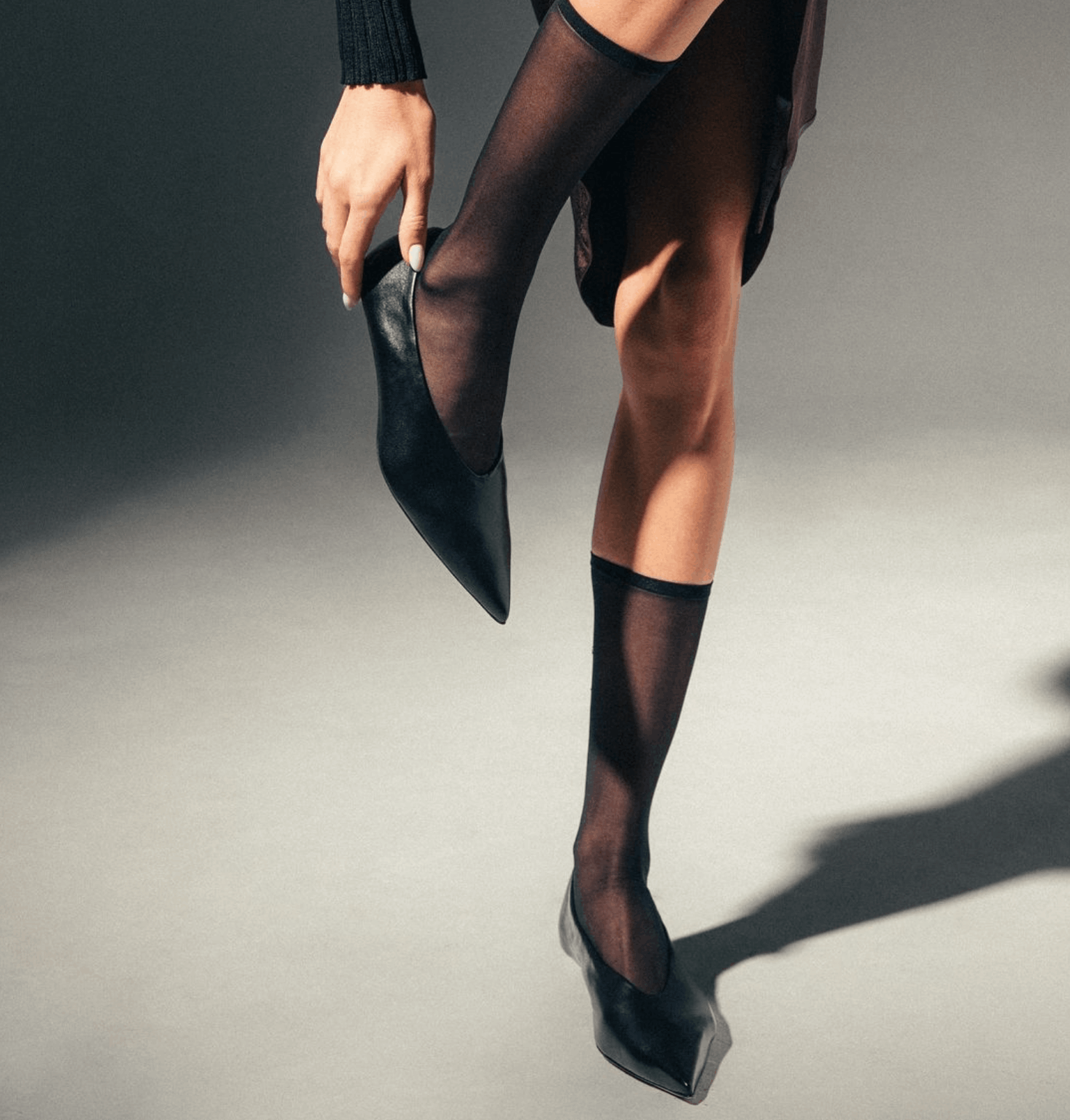
Founded in 1954 by the current owner’s parents, Antonio, the Italian shoe brand Guglielmo Rotta is the perfect example of a family craftsmanship that has evolved while remaining true to its roots. At this edition, the brand presented a collection that perfectly illustrates its commitment to quality, timelessness, and Italian craftsmanship.
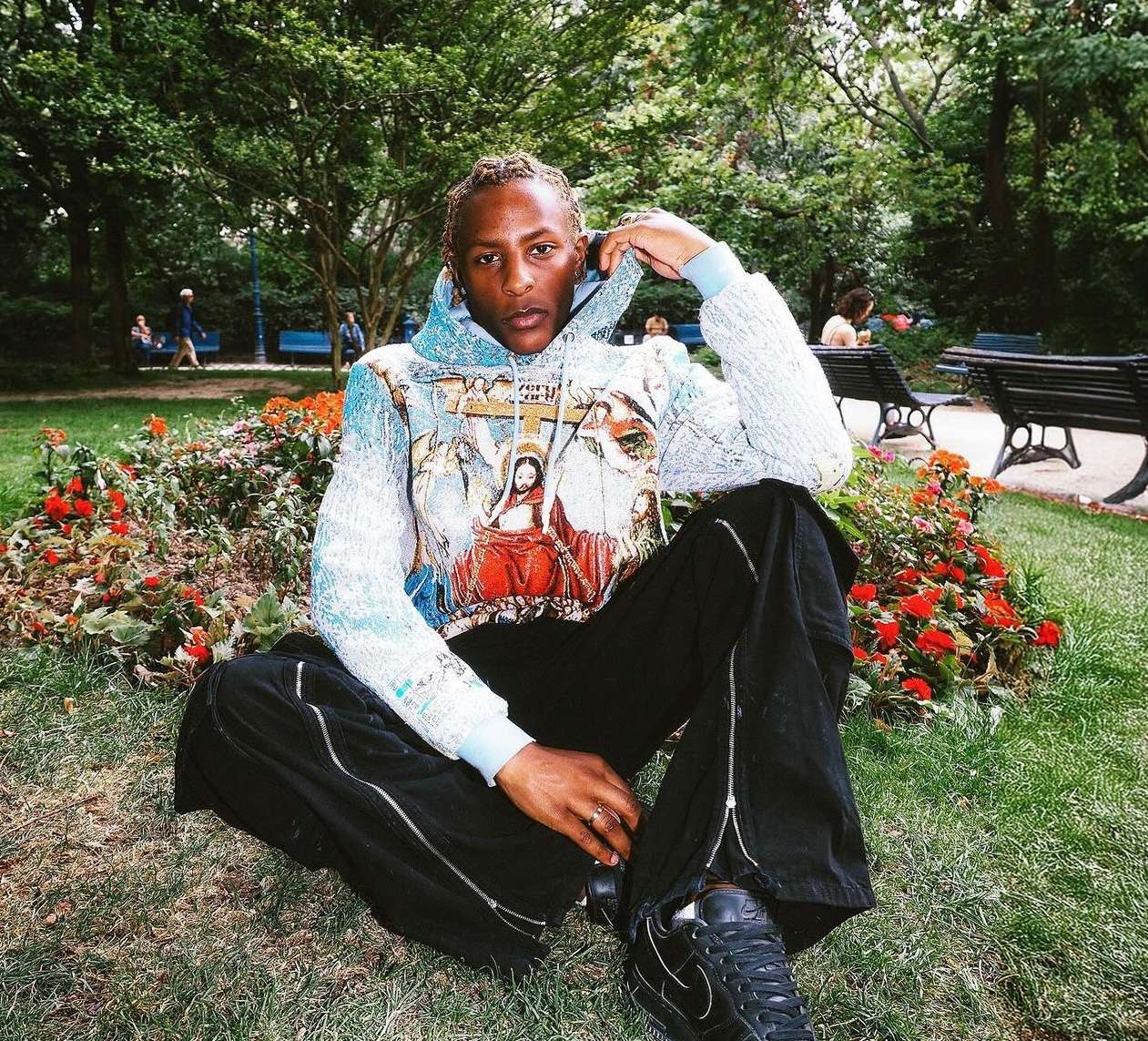
“Streetwear but make it Couture!” Very Rare, a lifestyle and ready-to-wear brand under the direction of Raf Reyes, embodies an avant-garde vision of streetwear through what the designer defines as ‘street couture’. Born during the 2020 health crisis, this family-run brand, founded with his older brother, stands out for its fluid silhouettes, intricate details such as embroidery, flocking, and graphic prints, and strong influences from 90s subcultures.
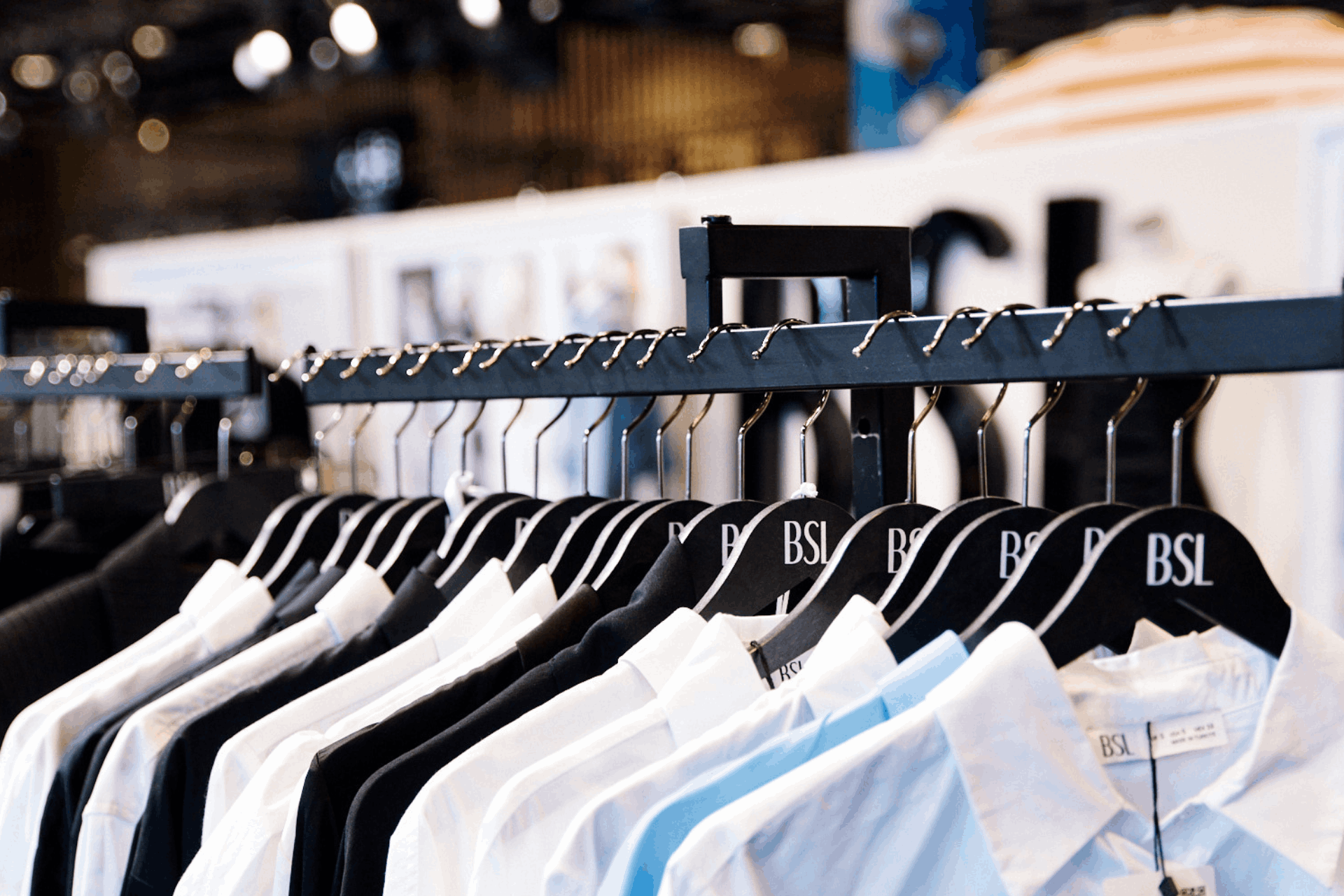
For over 15 years, BSL, a Turkish ready-to-wear brand, has made a name for itself in the fashion market in Turkey, with stores in the country’s major cities such as Istanbul, Izmir, Ankara, and Antalya. Initially focused on its own retail outlets, BSL adopted a new strategy last year: expanding its distribution network across Europe.
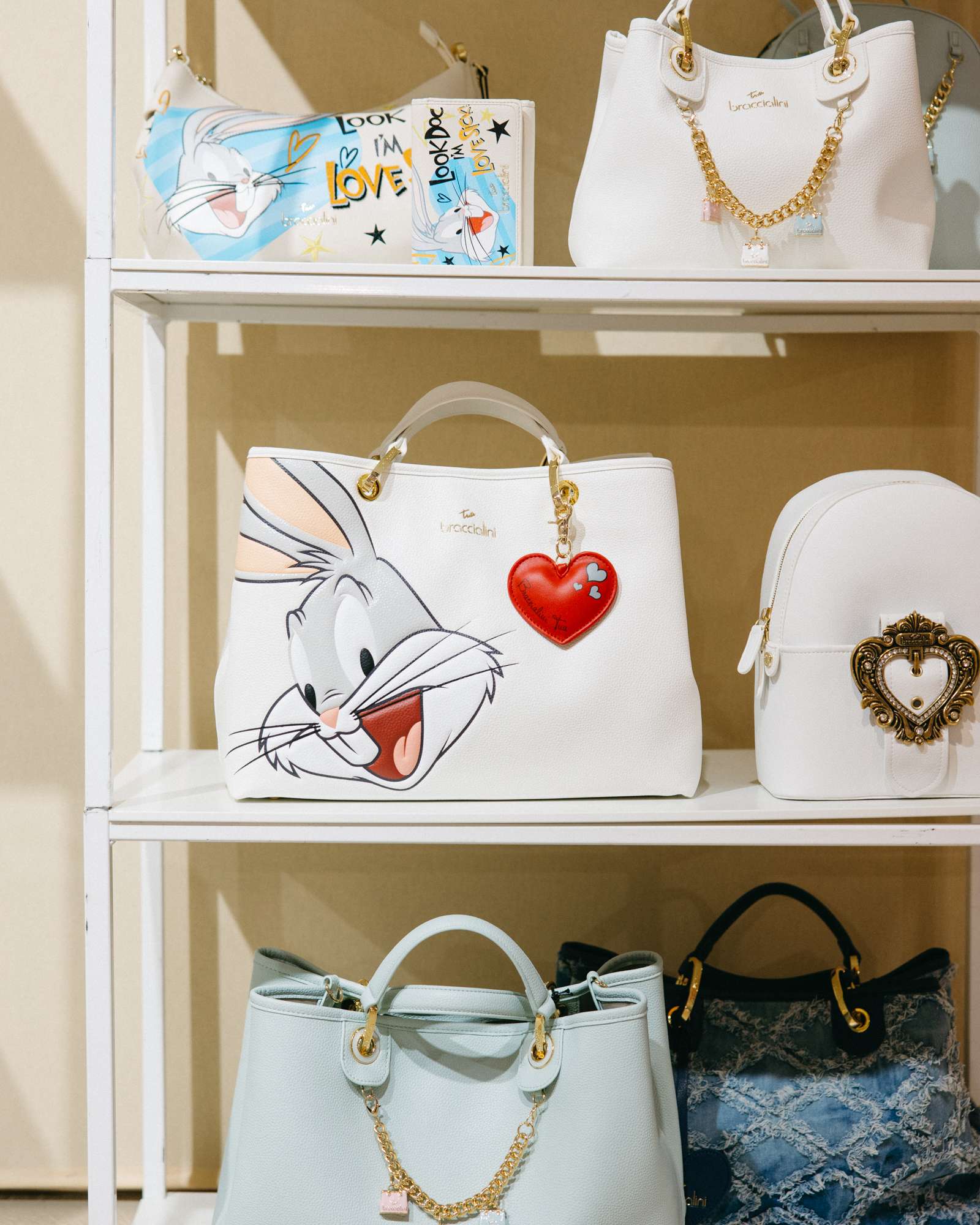
Reinterpreting its heritage Braccialini, the iconic Italian brand from Florence, is celebrating its 70th anniversary this year. "We were born in Florence, and the natural and architectural beauty of Tuscany greatly inspires our creations," shares Daniela, the brand's sales agent.
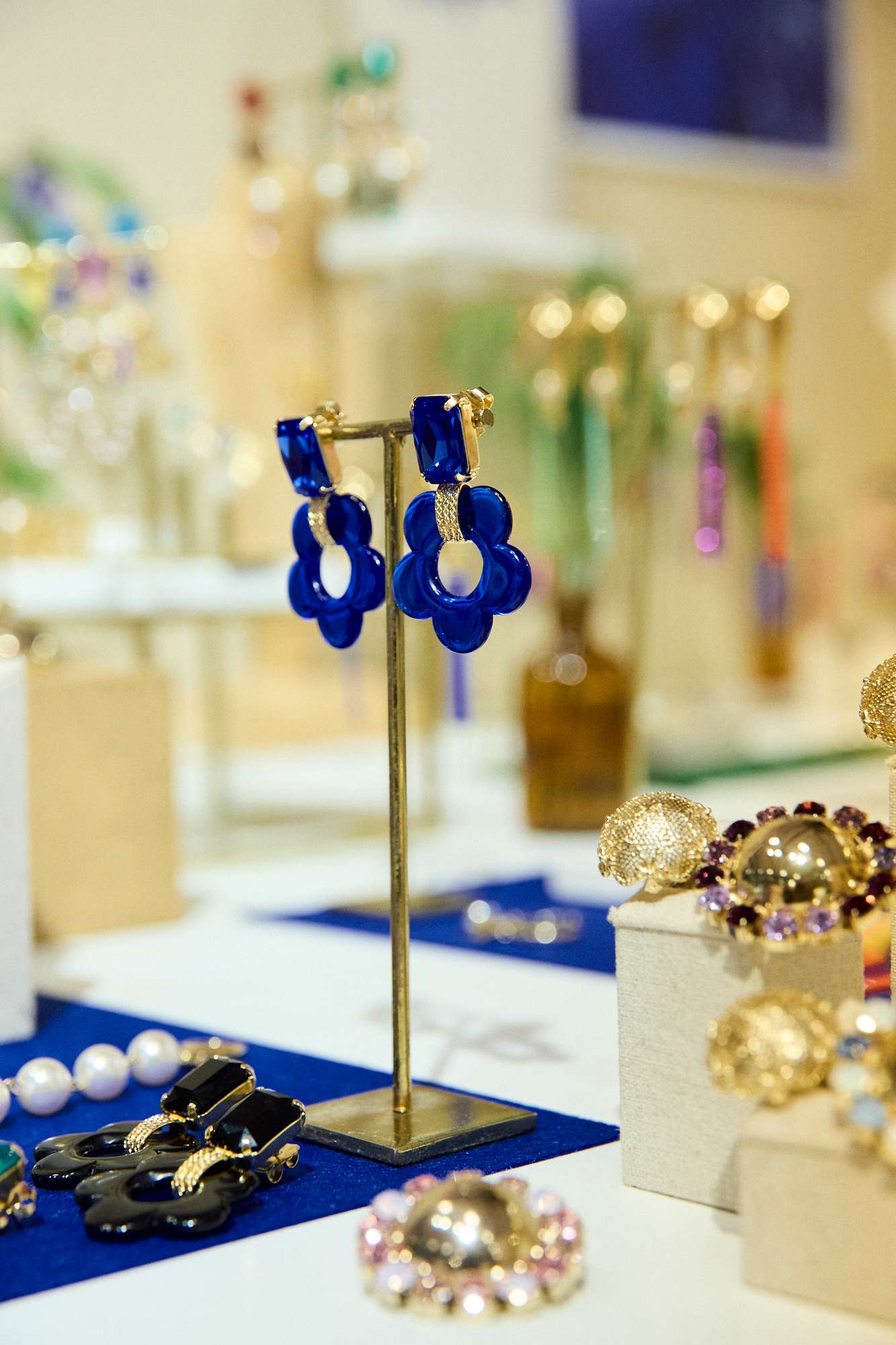
Craftsmanship at the heart of jewellery creation: a self-taught journey and the rise of gatsby soldering workshop Fifteen years ago, Julie Sion made her mark in the world of costume jewellery with a unique and passionate approach. "I stumbled into this profession a bit by chance," she admits. Self-taught, her first steps into creation were through a craft-focused approach, before collaborating with French workshops to ensure ethical and high-quality production for her eponymous brand. These collaborations led her to develop a strong and engaged community, not only around her creative project but also through the human values she upholds in her work.
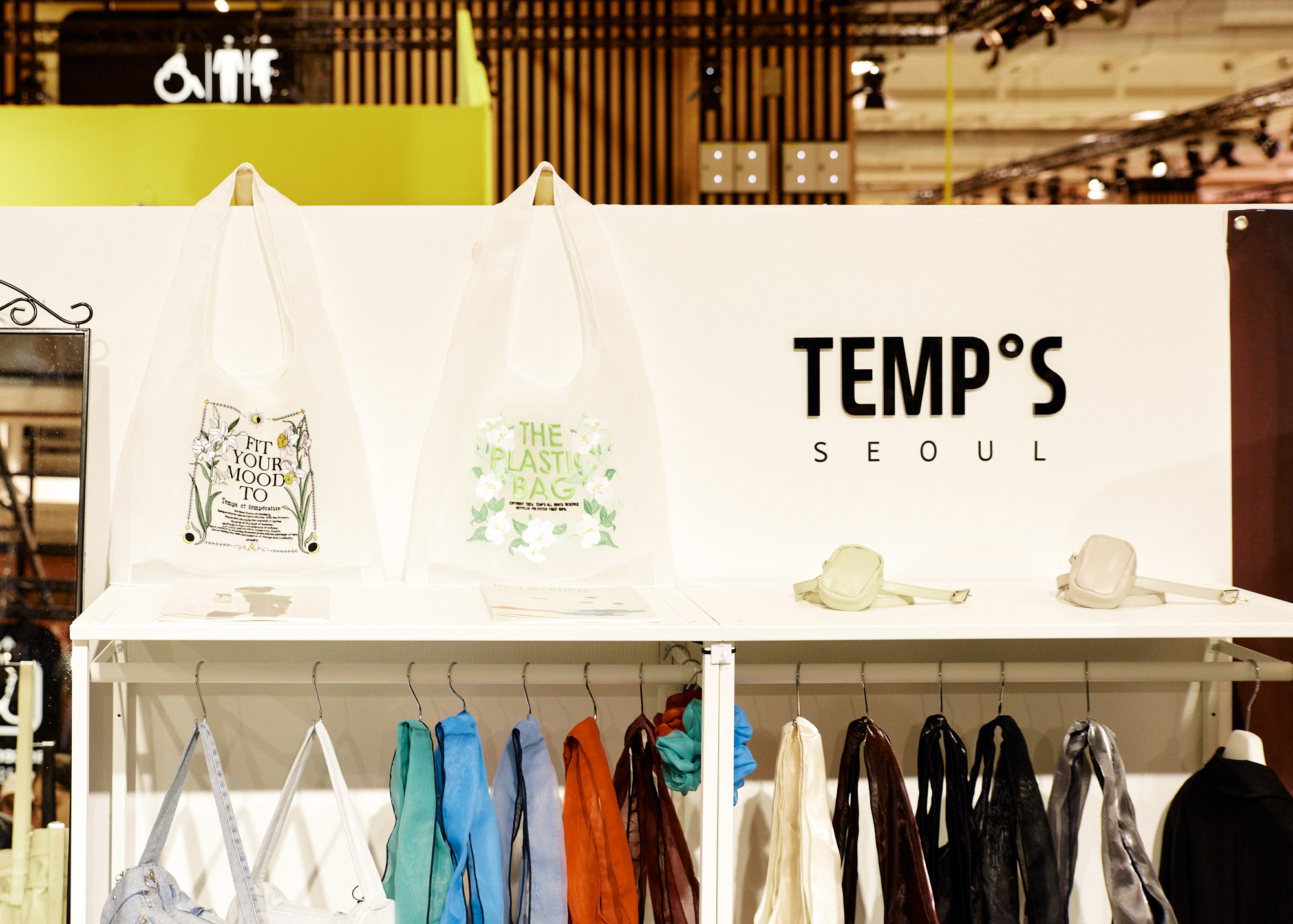
During their debut at Who’s Next, the South Korean brand Temp’s, led by Joanne Jeon Eun-jung, captured attention with its deep commitment to sustainability, combined with a modern and conceptual approach to design.
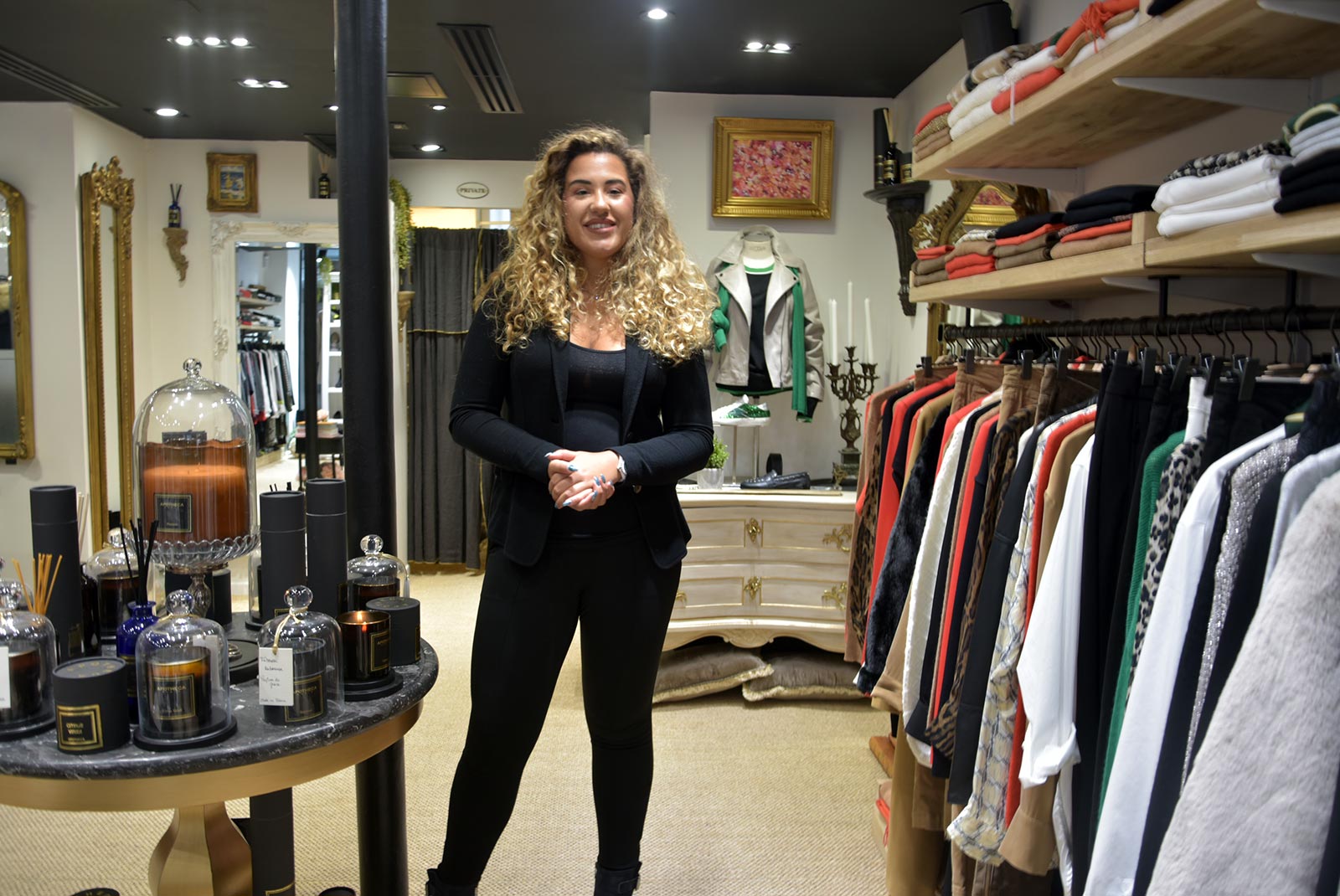
Pamela Kemmat, the influencer and founder of the Pamela Rouen boutique, and her mother Nadège Thevenon, founder of the Paloma Rouen boutique, share their thoughts on “Who’s Next,” an event they regard as the beating heart of the fashion industry.
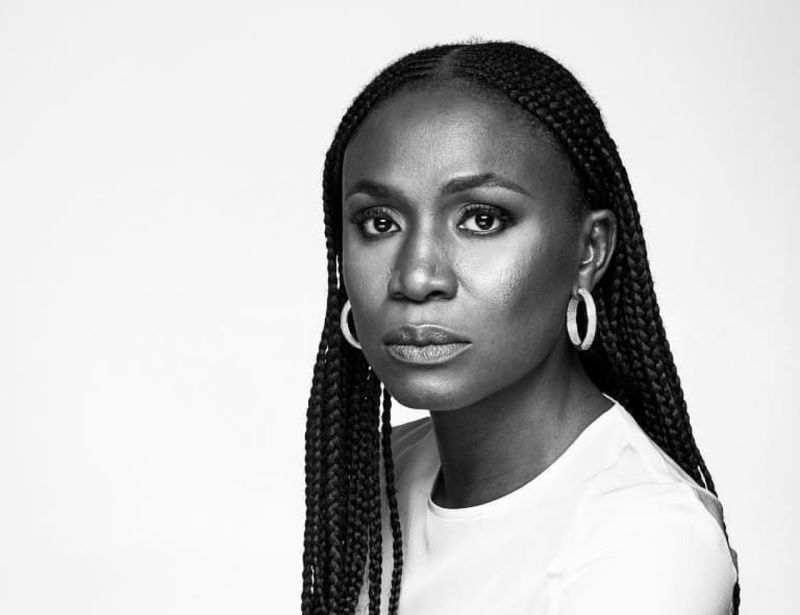
Meet Abasiekeme Ukanireh, the visionary founder and artistic director of Eki Kere, a Nigerian brand that has captivated audiences with its unique creations, showcasing vibrant raffia-based designs.

Who's Next? The great thing about the initial chaos of Who's Next is that it has lasted.
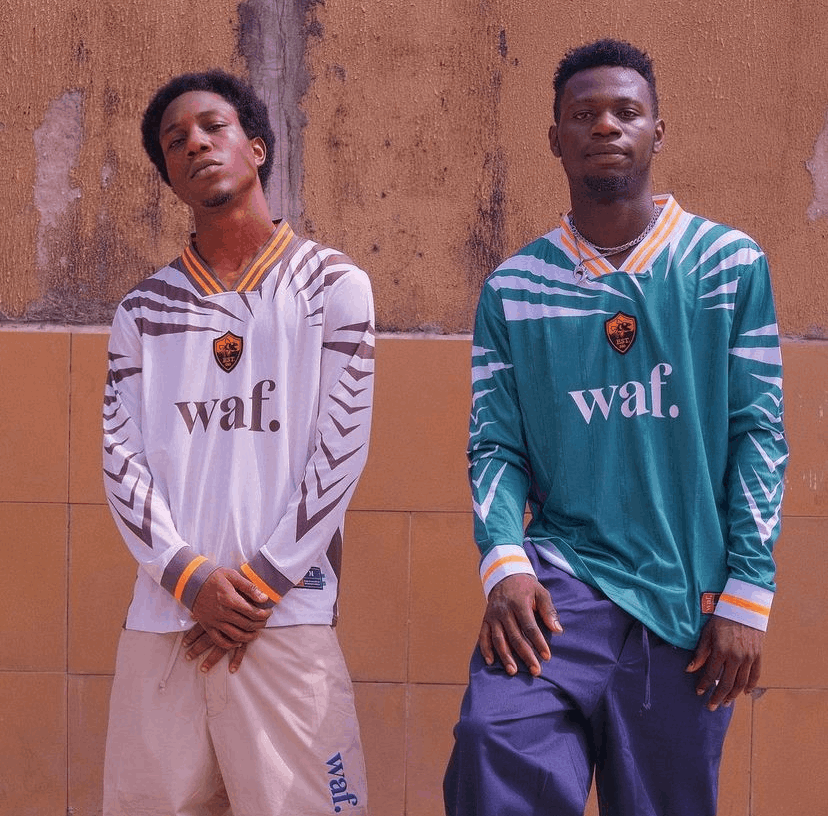
Street Culture resonates with the complexity of a city’s soul. The people, as a community, are those who define and codify its intricacies. Lifestyle, Fashion, Art and Music intertwine through the cosmopolitan blend that characterizes the singularity of a city’s vibe and energy.
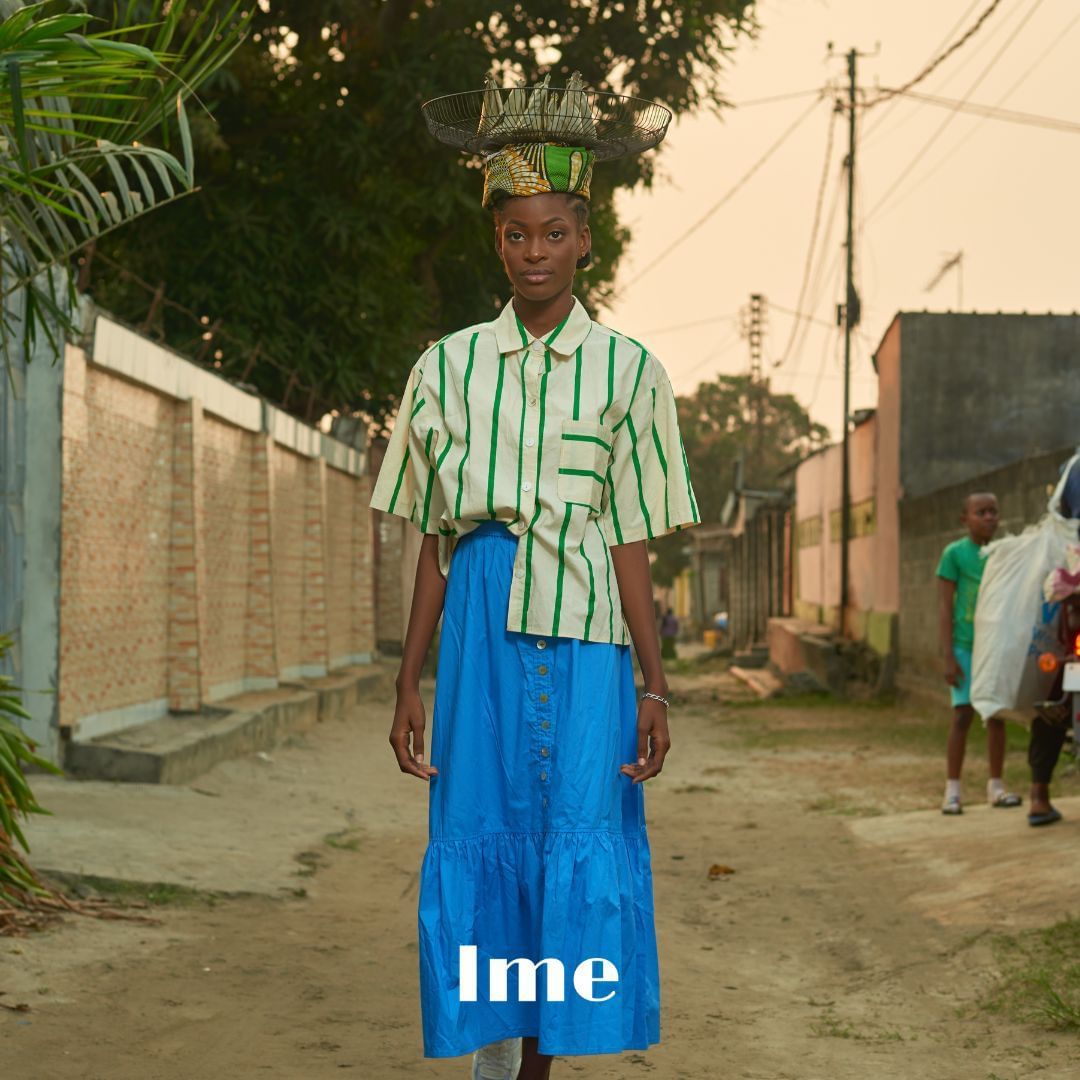
Since its inception in 2019, La Mode Européenne (LME) has stood out for its innovative and transformative approach to the fashion industry. By creating solidarity shops in Congo-Brazzaville and Cape Verde, stocked through donation boxes for clothing and accessories circulated in France and Europe, La Mode Européenne is committed to social and professional reintegration and creating local employment.
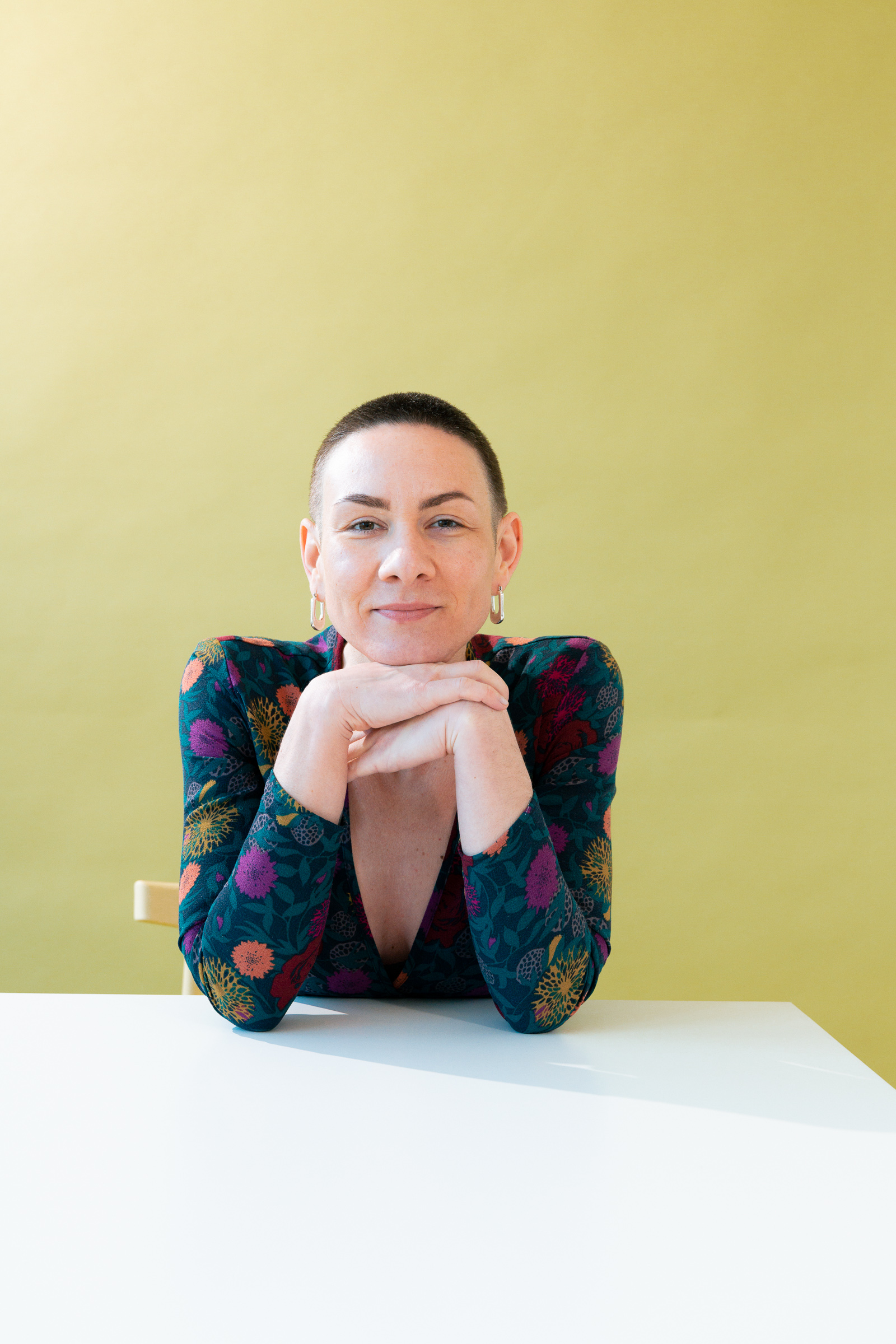
Lavinia Muth, an economist specialising in business ethics for actors of the fashion landscape, has dedicated 15 years to advancing social and ecological standards in the textile and creative industries. Her work as an external auditor, inspector, and investigator, in collaboration with Messe Frankfurt’s trade shows for instance, underscores her commitment to fighting against “corporate sustainability” and “green-washing”.

Julien Martinez, founder of the high-end ‘souliers’ brand Souliers Martinez, embodies the perfect fusion of traditional artisanal craftsmanship and contemporary innovation. Combining his deep Spanish roots with his Parisian cultural influences, his company stands out with a unique approach to leather weaving, supported by committed sustainable values and strong ethics.
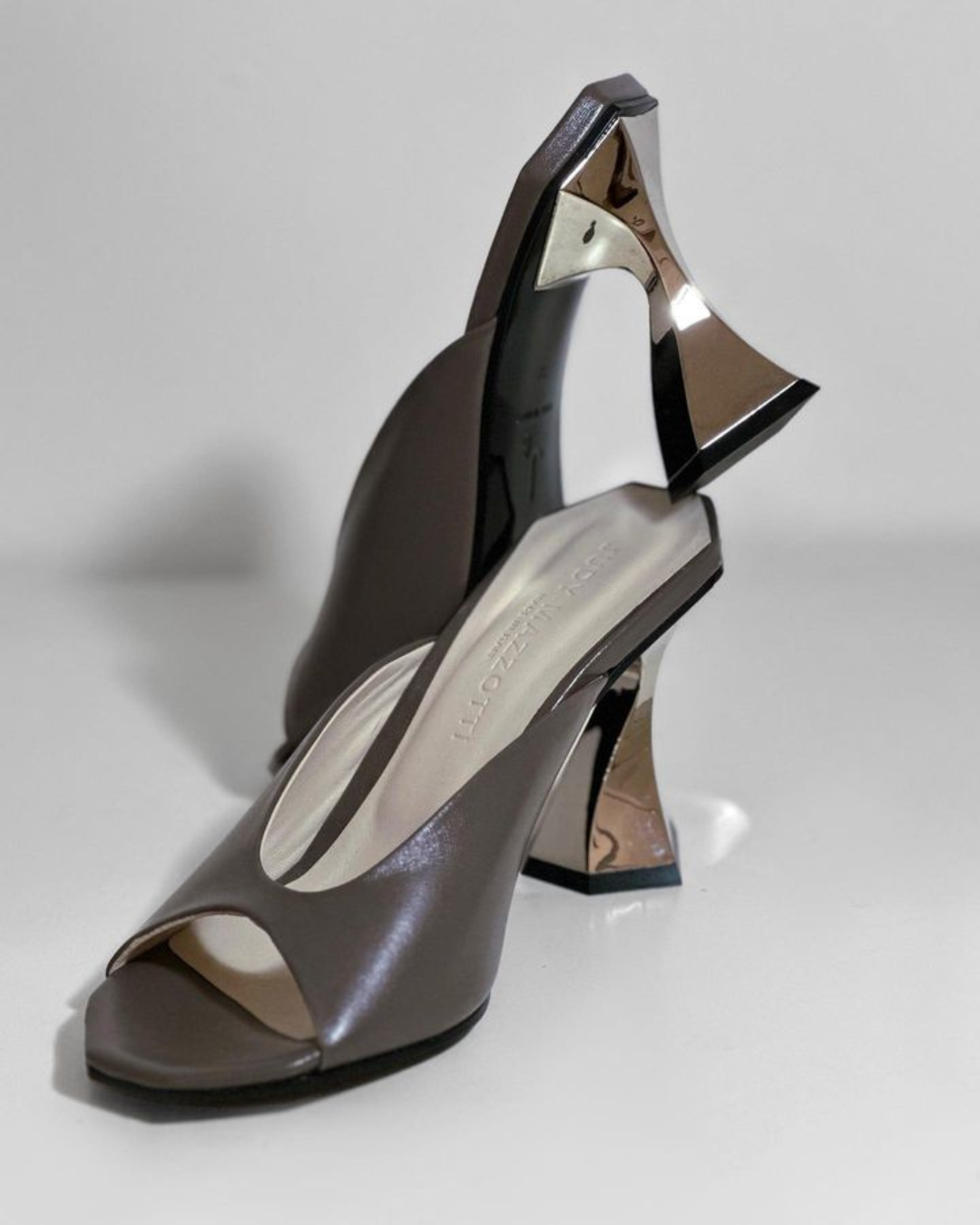
Founded in Rimini from the vision of the eponymous young Italian designer, Judy Mazzotti, Judy created her brand with a focus on the future and research and development centred on innovation and sustainability.
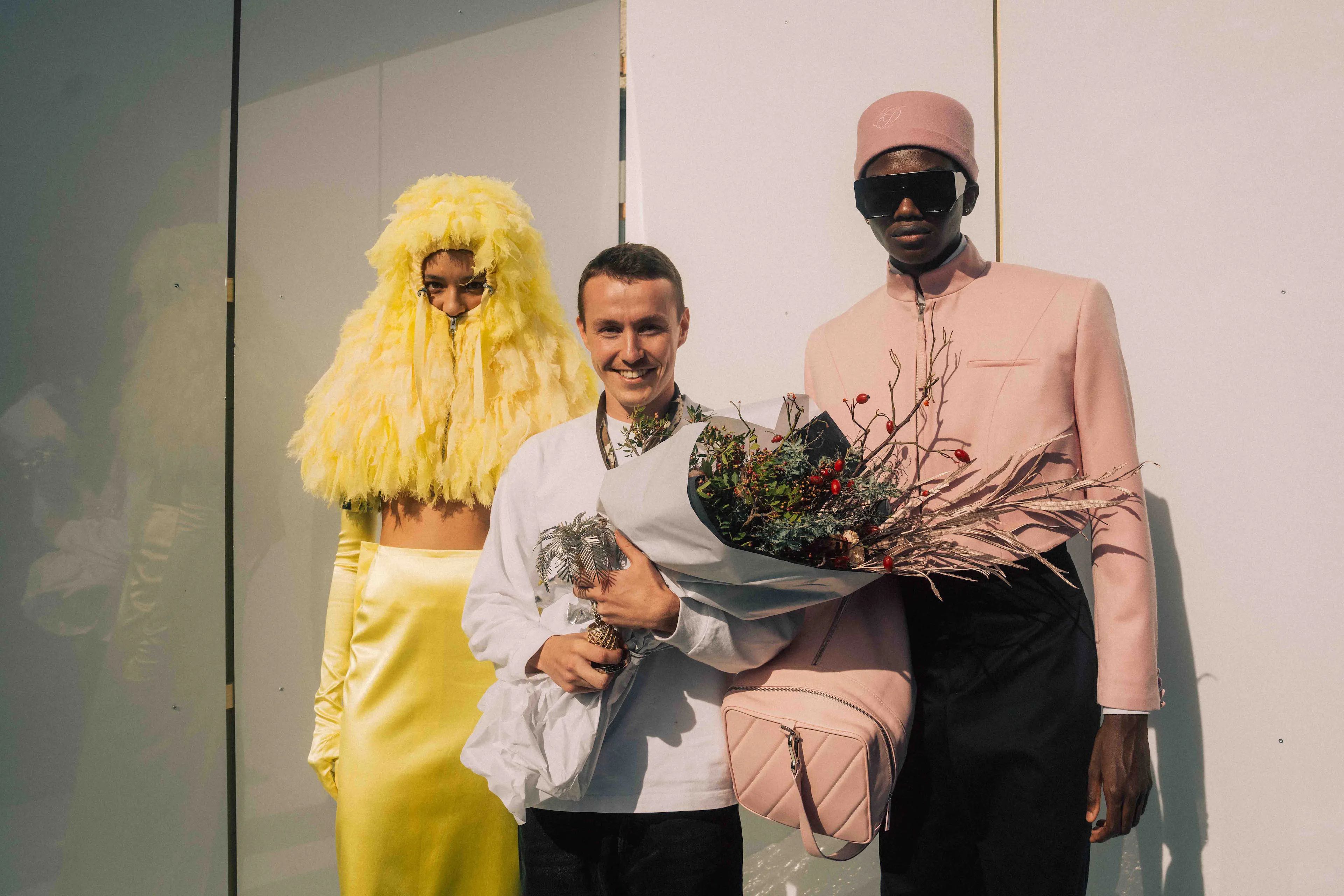
Every year since 1985, Hyères has played host to the Festival de la Mode et de la Photographie.
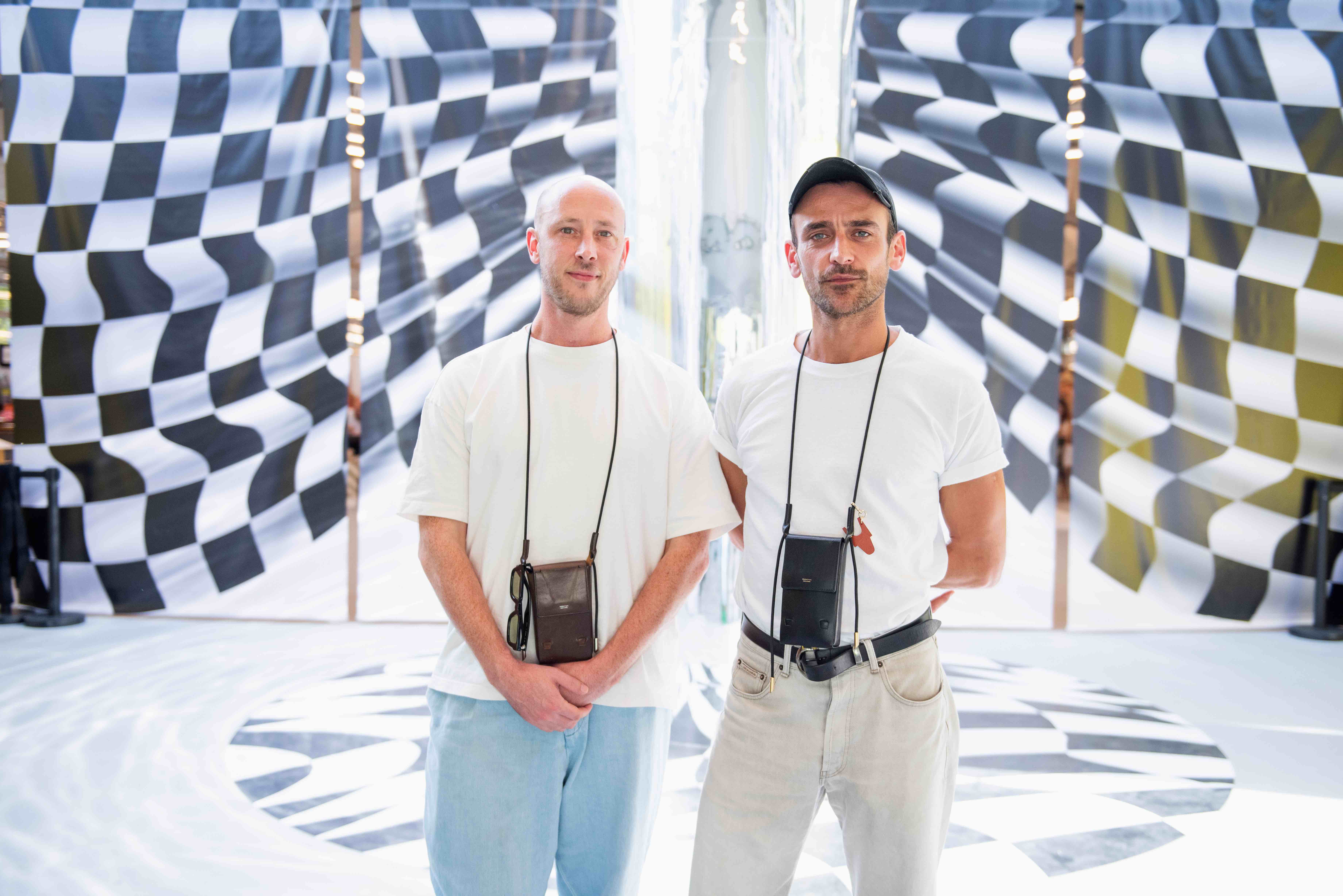
Bastien Beny and Simon Delacour are the creative minds behind the Domestique brand, leather goods accessories made in Paris.
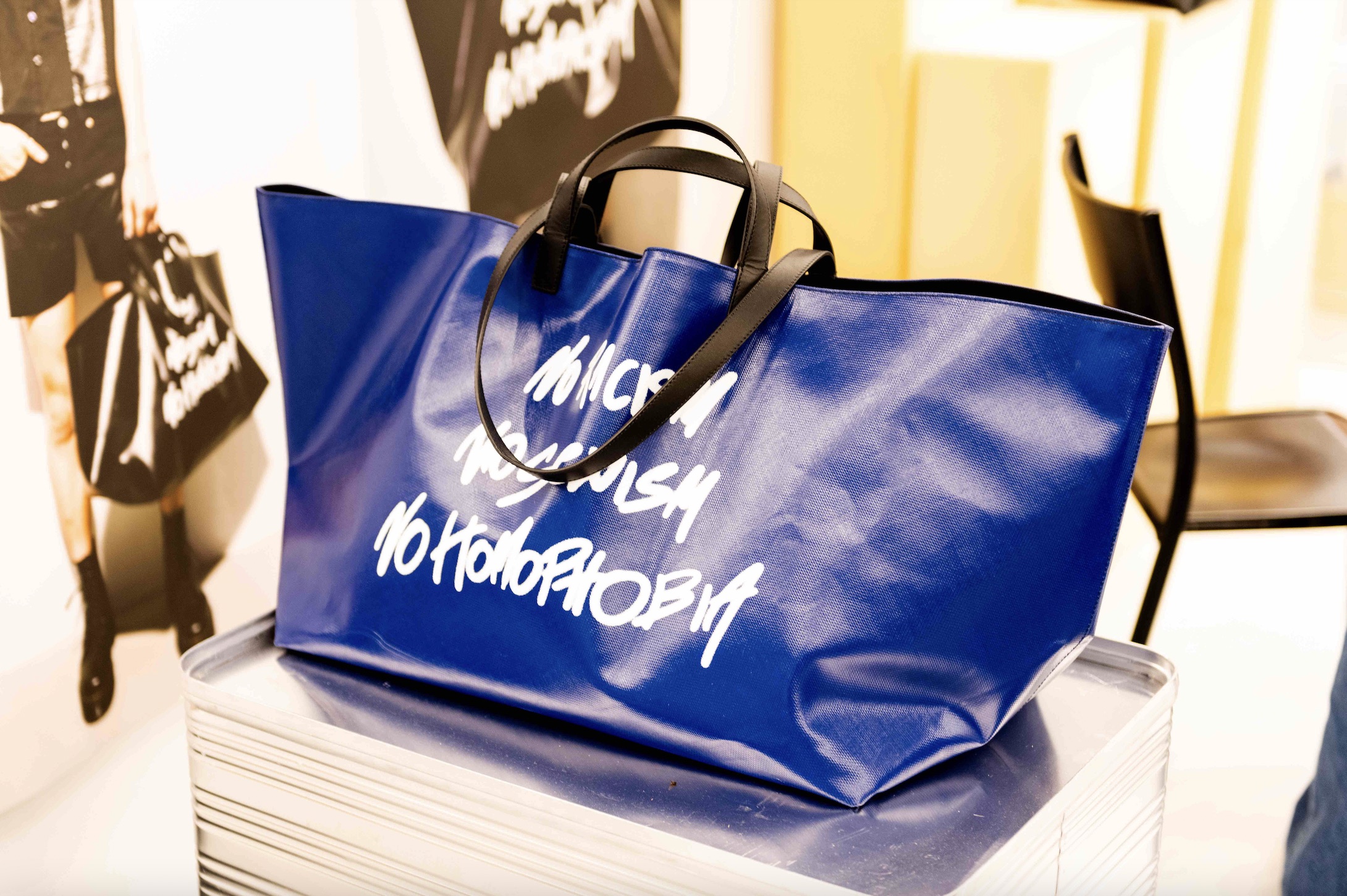
At La Caserne, a sustainable fashion incubator in Paris's 10th arrondissement, Jeanne Friot crafts impactful fashion.